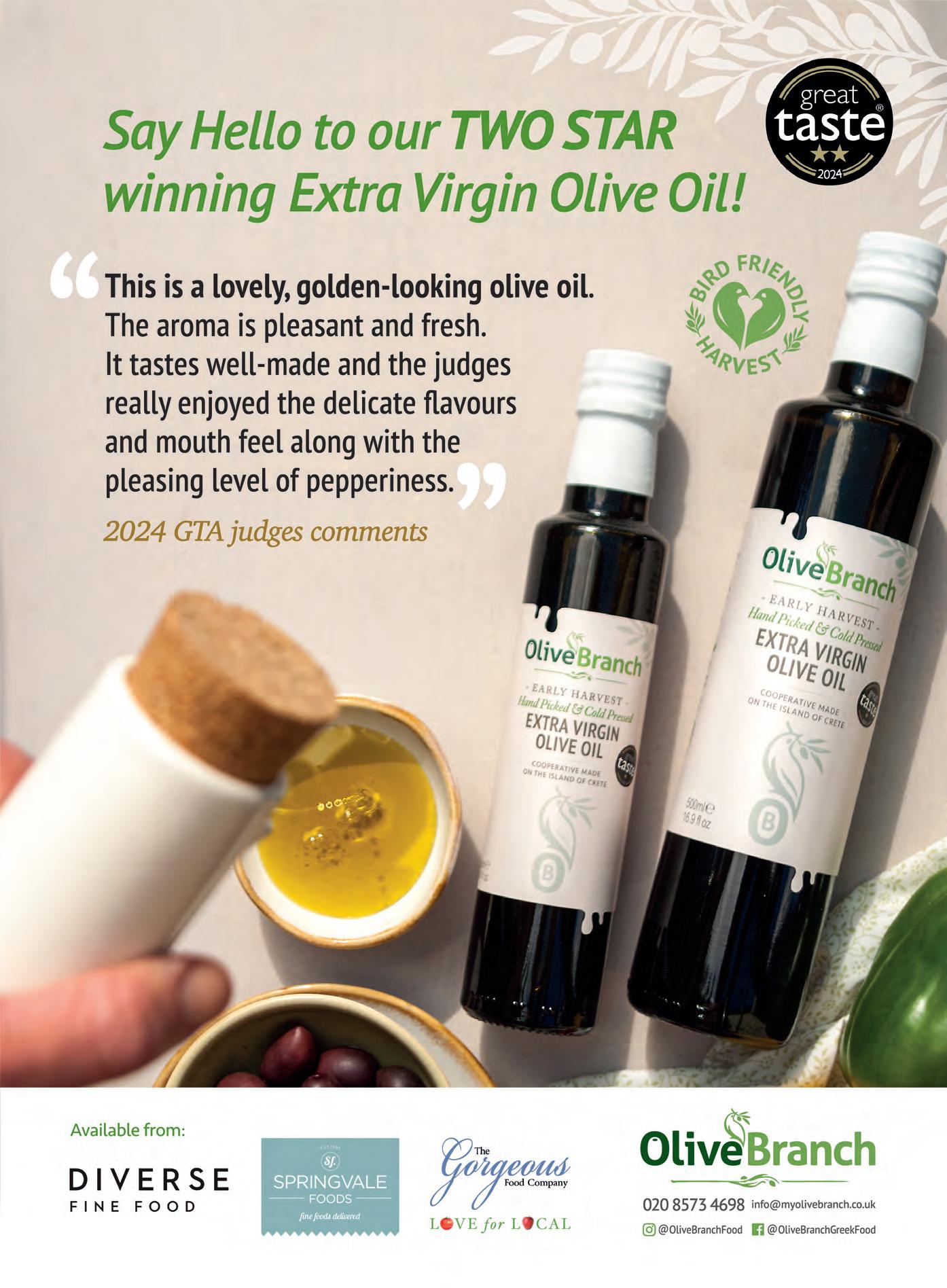A layered approach
Discover how some of the UK’s top independents run their foodservice operations

ALSO INSIDE Middle Lane Market Tea, coffee and chocolate NPD The new British cheese boom








Discover how some of the UK’s top independents run their foodservice operations

ALSO INSIDE Middle Lane Market Tea, coffee and chocolate NPD The new British cheese boom







editorial@gff.co.uk
Editor: Michael Lane
Deputy editor: Tanwen Dawn-Hiscox
Art director: Mark Windsor
Contributors: Claire Bullen, Richard Faulks, Patrick McGuigan, Greg Pitcher, Lynda Searby
Cover photo: Laura Roberts
opportunities@gff.co.uk
Sales and publishing director: Sally Coley
Senior sales account manager: Becky Haskett
Sales assistant: Henry Coley
That badly made coffee and poor pastry really drove home just how bad foodservice can be in our country.
By Michael Lane, editor

Both at work and at home, I have a bit of a reputation for being particular about my coffee. Personally, I don’t think my standards are very high. For a start I don’t have any special milk requirements; in fact, I almost always have black coffee. And I generally prefer to make it for myself.
Occasionally I break from this norm (usually when I’m travelling) but, more often than not, I’m reminded why I don’t get coffee out or take it with milk.
The other day, I ordered a flat white from a vendor at Paddington Station and spent the next 15 minutes trying to force the vomitlike concoction down while standing in the thronged concourse. To make matters worse, I bought a cinnamon bun that turned out to be staler than the milk in my coffee.
That badly made coffee and poor pastry really drove home just how bad foodservice can be in our
Michael Lane editor
Dark Woods Coffee
Accounts assistant: Julie Coates
Finance director: Ashley Warden support@gff.co.uk
Managing director: John Farrand
Associate managing director: Christabel Cairns
Partner relations director: Tortie Farrand
Chairman: Bob Farrand
Marketing officer: Jenna Morice
Marketing and operations
assistant: Frances Coleman
country. All the more reason to have a read of our article (on page 22) that draws upon the experiences of operators in our market that do get it right.
The second thing that my depressing railway catering experience made me ponder was how important your surroundings are when consuming food & drink. Even if the bun and coffee had been good, would it have parted the manic sea of luggage on wheels, shooed the flaky pigeons or quietened the tense tannoy announcements?
Context is something that is deeply important when it comes to our experience. It can enhance excellence, mitigate the mediocre and even elevate the ordinary. On a recent Alpine holiday, I was reminded of this when my fellow chalet guests raved about the mystery blue cheese that was served after dinner each night. When everyone had gone to bed, I had a look in the kitchen fridge and
discovered it was an own-brand product from a French supermarket, simply called Bleu. Nothing wrong with that, but could everyone’s enjoyment of this cheese be down to the roaring fire and multiple glasses of Côtes du Rhône?
Speaking of context, the independent retail community has a lot going on right now. Many will be facing up to the new Simpler Recycling regulations coming in this month, all manner of stock is increasing in price, and the new employment measures coming in April are preying on everyone’s minds.
Over the next few months, the big test is going to be how our sector manages these two types of context – operating under all manner of pressure and yet still offering customers a joyful environment to shop and eat in. Whoever first coined the phrase “context is everything”, couldn’t have been more relevant in 2025.
For more than a decade, Dark Woods has led by example – whether that’s through exemplary sourcing, expert roasting or innovative packaging. I’d imagine that sometimes, it’s a difficult thing to get convey all of this to timepoor consumers. Its update of its single origin coffee range is triumph: it looks great, educates the consumer and, of course, all of the coffees are spot on. More on page 43 darkwoodscoffee.co.uk
PR & partnerships officer: Claire Fry
Data strategy & insight manager: Lindsay Farrar
Operations manager: Claire Powell
Operations coordinators: Chris Farrand, Sepi Rowshanaei, Chloë Warren-Wood
Operations & events coordinator: Zara Williams
Operations assistant: Jessica Radley
Published by The Guild of Fine Food Ltd Fine Food Digest is published 11 times a year and is available on subscription for £50 p.a. inc P&P. © The Guild of Fine Food Ltd 2025. Reproduction of whole or part of this magazine without the publisher’s prior permission is prohibited. The opinions expressed in articles and advertisements are not necessarily those of the editor or publisher Printed

Lidl is set to open its first in-store bar in Northern Ireland. The discounter secured a provisional license, and overturned a High Court challenge to set up the establishment within its Dundonald store near Belfast.
Popular independent coffee brand Little’s won over Dragon’s Den investors, receiving four offers for a share of the business. Managing director Will Little accepted an £80,000 offer from Steven Bartlett for 5% of the business.
The FRA has reintroduced its certification scheme for farmers’ markets, setting out a list of eight key principles for them to qualify. These include championing farmers, prioritising local produce and being proud of provenance.
By Greg Pitcher
A ban on meat imports from Germany in the wake of a foot-and-mouth scare has had a range of knockon effects for stockists of continental produce.
Delis told FFD in February that shipments from Italy had been held up by extra origin checks as the UK scrambled to keep the disease outside its borders.
The Department for Environment, Food and Rural Affairs said on 15th January that it would not issue health certificates for fresh meat from Germany until further notice.
Steven Salamon, owner of Wally’s Delicatessen in Cardiff, said the move had directly impacted his business.
“Supply of German smoked hams and salamis has dried up, after stocks already in the country were used up,” he said.
“Supply of some Italian meats has also been affected as apparently they
The Avian Influenza Prevention Zone requiring captive birds including poultry to be kept indoors to stop the spread of bird flu has been extended to the Midlands and a wider part of northern England. The housing measures were in response to a number of cases of avian
influenza across England, in what the Government said were “heightened risk levels”.
Already in force in parts of Yorkshire and eastern England, it now extends to cover Herefordshire, Worcestershire, Cheshire, Merseyside and Lancashire.


sometimes use German meat.”
Salamon was left pinning his hopes on a change in fortunes.
“I’m crossing my fingers things might get back to normal soon,” he said. “There is not a lot we can do.
“Customers have to go without or order something else. They have had to get use to shortages of meat products from Germany since Brexit came into full force.”
Frankie Dyer, owner of Barbakan Delicatessen, said the Manchester business had already
reduced its reliance on German meat after finding it was taking a long time to arrive in the wake of the UK’s EU exit.
However, that didn’t stop the latest ban impacting the retailer.
“Our most recent Italian meats import was stopped at the border and delayed by a week while they went through all the traceability processes to check if any of the pork had originally come from Germany,” said Dyer.
“We then only received half our order and all of the salamis were sent back.”
Barbakan was left without key ingredients it uses across various top-selling lines including salads and sandwiches.
“It is frustrating,” said Dyer. “I’ve been told it’s a bit of a paperwork nightmare for all meat suppliers across Europe. Germany is one of the biggest pork suppliers on the continent.”
Farming minister Daniel Zeichner said in January: “The Government will do whatever it takes to protect our nation’s farmers from the risk posed by foot and mouth disease.
“That is why restrictions have immediately been brought in on animal products from Germany to prevent an outbreak and we will not hesitate to add additional countries to the list if the disease spreads.
“We will continue to keep the situation under review working closely with the German authorities.”
Retail crime in Britain has reached an all-time high, with violent and abusive incidents in stores soaring by over 50% in a year, according to the British Retail Consortium’s (BRC) latest annual crime survey. In the year up to August 2024, retailers faced more than 2,000 daily incidents of aggression, up from 1,300 the previous year. Among these, 124 violent acts occured each day, with 70 involving a weapon. Theft also reached unprecedented levels, with over 20 million incidents recorded in a year – averaging 55,000 a day. Losses from theft alone hit £2.2 billion, up from £1.8 billion the previous year.
To combat rising crime, retailers have invested a record £1.8 billion in security measures such as CCTV and additional security personnel, up from £1.2 billion. The combined cost of crime and prevention now stands at £4.2 billion, a 21% increase from the previous year’s £3.3 billion.
BRC chief executive Helen Dickinson warned that retail crime is “spiraling out of control,” citing incidents where workers have been spat on, racially abused, and threatened with weapons. “Every day this continues, criminals are getting bolder and more aggressive,” she said. “We owe it to the
3 million hard-working people in retail to bring the epidemic of crime to heel. No one should go to work in fear.”
Crime minister Diana Johnson condemned the surge in shoplifting and violence as “utterly unacceptable.” In response, the Government plans to introduce a new offence for assaulting retail workers and end the “effective immunity” for thefts under £200. As part of its Safer Streets Mission, the Government is also restoring neighbourhood policing, deploying more officers, and ensuring every community has a dedicated local officer to tackle crime.

JOHN FARRAND, GUILD OF FINE FOOD
“Is this an opportunity? You can be sure that fewer people working in supermarkets will mean less customer interaction, fewer folk on the tills and less advice to customers. That means independents can extol their virtues yet again as places that people can shop to get advice on the food and drink they are buying.“

HELEN DICKINSON, BRITISH RETAIL CONSORTIUM
“Retailers are facing £7bn in additional costs from the Budget and a new packaging levy. With retailers’ margins leaving little scope to absorb more costs, price rises and job cuts seem inevitable. To mitigate this and shore up investment, theGovernment must ensure that no shop ends up paying a higher business rates bill.”

PETER
CHEESE, CHARTERED INSTITUTE OF PERSONNEL AND DEVELOPMENT
“These are the most significant downward changes in employer sentiment we’ve seen in the last 10 years. Employer confidence has been impacted by planned changes to employment costs, and employment indicators are heading in the wrong direction. Many are now planning to reduce headcount, raise prices and cut investment in workforce training.”
By Greg Pitcher
Fine food retailers are weighing up their options ahead of a wave of employment cost hikes, after a number of supermarkets moved to shed staff.
Delis and farm shops told FFD they were taking action before increases in National Insurance contributions and National Minimum Wage levels take effect in April.
Meanwhile Sainsbury’s announced plans to cut 3,000 jobs, rival chain grocer Tesco outlined proposals to axe 400 positions and Morrisons revealed it would remove certain people in management roles.
A survey of more than 2,000 UK employers by the Chartered Institute of Personnel and Development found that around a third of companies were planning to lower their headcount.
Sangita Tryner, owner

of Delilah Fine Foods, said the Nottingham deli had opted against replacing two employees who left this year as it battled with looming cost rises.
“It is a no brainer for all businesses,” she said. “The measures coming in will take about £30,000 off my bottom line. I think there will be redundancies from independent shops in this area.”
Delilah considered reducing its opening hours but has so far decided not to. Other options on the table include limiting table
Waitrose has invited suppliers of “minimally processed” food to bid for space on its shelves.
The upmarket grocery chain said its BrandsNew programme, launched last summer to help attract new products, was interested in healthy wholefoods.
The initiative co-hosted an event with consumer goods consultancy YF in January looking at the issue of UPF.
Waitrose said in a statement: “We welcomed speakers from Campden BRI, Tonic Health, PukPip Frozen Dessert and SuperKeen Cereal.
“One of the topics of conversation was
about the non-standard definition of ultraprocessed food, inviting the opportunity to debate the topic and hear differing industry perspectives.”
The supermarket said its customers had become “increasingly aware” of the prevalence and dangers of highly manufactured products in their diets.
“They are looking to include more minimally processed wholefoods as they want to make healthier choices,” it added in a statement.
“BrandsNew aims to identify and support exciting new challenger brands to launch at Waitrose. We are open to
service in the café.
“The supermarkets are moving towards automation so don’t need as many staff,” said Tryner. “There is no way we could do that and satisfy the needs of our customers.”
Samantha Green, shop manager at Groombridge Farm Shop, said the Kent business had moved parttime staff on to zero-hours contracts to build-in flexibility ahead of cost rises.
“We have had some people for two years but we can’t guarantee they will
have work,” she said. “We want them to work for us and we try to give them the hours but I have become more mindful of what shifts we really need covered.”
Green expects the sector to experience difficulties as employment costs rise.
“A lot of local farm shops have closed, including one that was operating for 20 years.”
John Farrand, managing director of the Guild of Fine Food, said independents should keep an eye on supermarket activity.
“Stealing good ideas or processes from the multis is allowed, but we should also take heed when they make major decisions like cutting thousands of jobs,” he said.
“This is obviously because of changes in NI and that is something that all SMEs should be looking at. The sad fact is that in many businesses at our end of food and drink, the increase may cost someone’s job.”
hearing from brands who are making minimally processed, delicious food.”
YF chief executive
Theadora Alexander said interest in the dangers of highly manufactured products had “added fuel to an already heated debate about health”.
“Shoppers are looking to retailers for guidance,” she added. “Supermarkets such as Waitrose play a key role in this mindshift, and it’s clear that they must unite the industry to encourage debate and innovate.
“Challenger brands play a vital role in balancing the latest science with business realities to deliver meaningful progress across all aspects of the health agenda.”
Employer NI contributions will jump from 13.8% to 15% in April, while the earnings threshold at which these kick in will be slashed from £9,100 to £5,000 per employee.
Meanwhile the retail, hospitality and leisure Business Rates Relief will drop from 75% to 40%
Minimum wage will rise in April, with anyone aged 21 or older costing employers £12.21/h and 18-20-year-olds due £10/h.
Also packaging suppliers will become liable to start collecting data, with fees payable from October under incoming extended producer responsibility laws.
By Tanwen Dawn-Hiscox
From 31st March, the UK Government’s ‘Simpler Recycling’ initiative will introduce new waste management regulations for businesses.
Under the new rules, any commercial organisation with 10 or more employees will need to separate waste streams – food waste, paper and carboard, and dry recyclables (including glass, plastic and metals) – from general waste. This will involve establishing systems to segregate waste, as well as arranging for their collection by licensed waste carriers.
The Environment Agency (EA) will enforce these regulations, with financial penalties for non-compliance, including fines for contaminating recycling streams or improperly disposing of waste. Members of the public can also report non-compliant businesses,
The ASA has launched a consultation to ban background imagery, graphics and cartoons of junk food under the Government’s clampdown on HFSS.
Tonic producer Fever Tree has sold a minority stake to drinks giant Molston Coorsan 8.5% shareholding for £71m.
Online farmers’ market Wylde has crowdfunded £230,000 to scale its online plaform, which sells food & drink directly from farmers, fisherman, hunters and artisan producers.
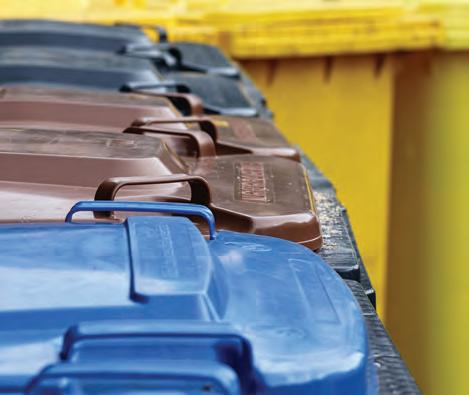
potentially leading to further enforcement action.
Microbusinesses –which have fewer than 10 employees – will have until 31st March 2027 to comply.
Part of the Government’s broader policy drive towards a circular economy, the new rules complement other measures such as Extended Producer Responsibility (EPR)
(more on page 21), digital waste tracking and the deposit return scheme (DRS). These efforts aim to reduce landfill waste and improve recycling rates, ultimately lowering greenhouse gas emissions.
At a briefing organised by Cornwall Council, James Ortiz from the waste management team advised that businesses “start by setting out an
Algys Farm Shop in Bintree, Norfolk is set for change as a new, purpose-built shop will replace the current space which opened in 2005 when it reopens this month. A well-known spot for PYO asparagus, pumpkins and Christmas trees, the expanded retail space will house more local products. algys.co.uk
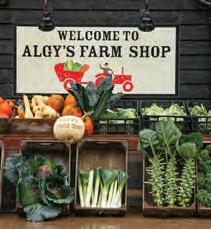
audit for your waste. It’s important really to understand what you’re doing, what you produce and how ‘Simpler Recycling’ is going to impact you – how are you going to have to split up those waste items and how they’re going to be collected.”
Once businesses have assessed their waste management needs, he recommended: “Have a chat with your waste collection services to talk about how you’re going to be compliant with the legislation and how they will be compliant.”
Another way to be improve compliance, he added, is through waste prevention. “Reducing what you produce from the beginning will ensure you are pre-sorting, in a way.”
Ortiz also advised that the Environmental Authority website has a list of authorised waste brokers, warning: “Make sure that whoever you’re using has a waste carrier’s license, because if you don’t you could get into trouble with the EA if they

Since opening Knights Farm Shop in January 2025, Gary and Sue Knights have doubled down on the business in Polegate, East Sussex. A fully stocked butcher’s counter is the central attraction, complemented by a wide selection of fruit and veg, breads, chutneys and store cupboard essentials. The café serving homemade pastries and freshly ground coffee. knightsfarmshop.com
The owners of Strawberry Fields Farm Shop in Devon are opening a new shop in café in Tithebarn, Exeter. The original site in Lifton started off as a pick-your-own farm 30 years ago, with the farm shop opening in 2002. It now has a restaurant, a function suite, its own wind turbine and solar panels so as to be self-sufficient in electricity. The owners said the new shop will be a smaller version of the original. strawberryfieldslifton. co.uk

Part of a business’s due diligence is to have up to date waste transfer notes, which should be signed off by the waste collector specifying what materials they’re collecting, who they are, and their destination.
Meanwhile Association of Convenience Stores chief executive James Lowman advised that retailers should review the bin provision they have in public facing areas of their shops, “especially bins that they provide outside the business as they are most likely to have different waste streams that become contaminated.
He added: “It’s important to ensure that there is minimal risk of contamination, which in some cases will mean that shops have to remove some of the bins that they provide. Retailers should speak to their waste collectors as soon as possible to see what their policy is on separation and collection.”

South Angle Farm Park in Soham, East Cambridgeshire, is a family-focused farm park with a café, offering children’s activities including animal petting and creative games. To round off the experience, it has just opened a farm shop, too. southanglefarmpark. co.uk came knocking at your door when they asked for your duty of care.”
CHAMPAGNE IS NOT JUST ANY OLD TIPPLE and Miller’s aren’t just any old biscuits and crackers.

extraordinary






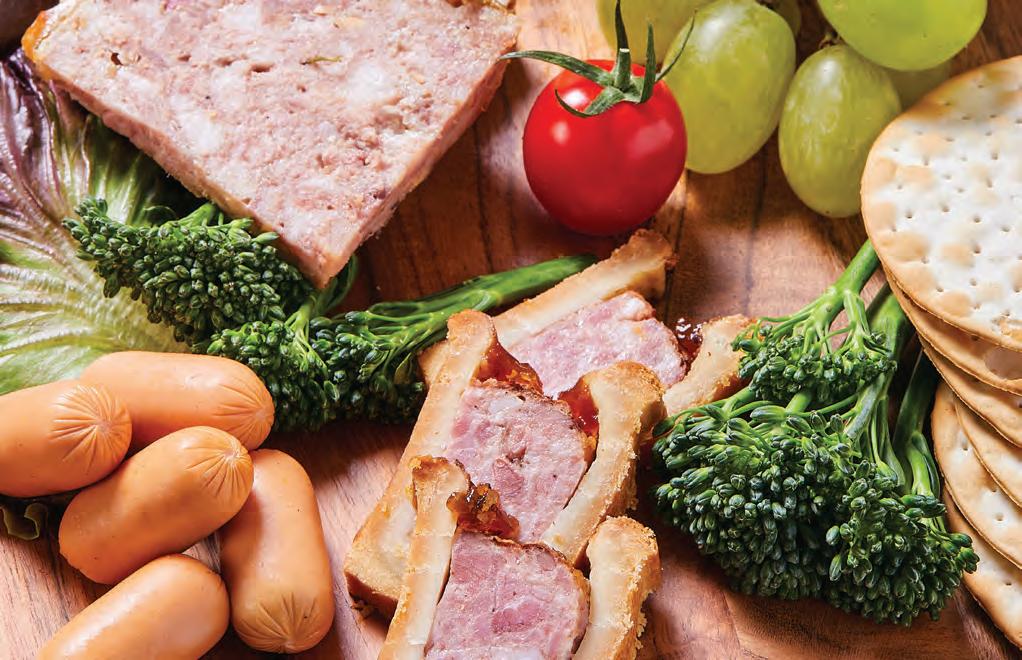

PERRY WAKEMAN, Rennet & Rind, Stamford, Lincolnshire
Our retail journey began when Covid struck. We were wholesalers, supplying delis and restaurants. Overnight our turnover went from £100,000 a week to zero. We had £250,000 worth of artisan cheese maturing and no-one to sell it to. We created a logo in two days and a website in seven and launched ‘mystery cheese boxes’ containing five different cheeses every week. I got in front of the camera and talked about the cheeses on social media and online orders went crazy. Within two months, we’d sold all the cheese that was maturing and cheesemakers were contacting us and asking if they could be included in our cheese boxes.
When the world returned to ‘normal’, we were expecting our online sales to drop off. But they didn’t. We had built this brilliant community of people who wanted to know the detail of how artisan cheese is produced and matured.
We felt that if we could enthuse people about cheese online, we could do it even better in a shop setting. Also, after such a traumatic period we wanted to strengthen our business and make it more resilient. A shop would also give us another revenue stream and help cashflow.
When it came to fitting out the shop, we maximised what we could do within our budget by doing as much work as possible ourselves. We couldn’t afford to buy everything we wanted initially so we prioritised the refrigerators and counters and economised on those things the customer can’t see, like the kitchen area.
Both wholesaling and retailing have their challenges, but I think it is easier to go from wholesaling to retailing than the other way round. Selling to chefs is really difficult. Selling in a shop setting is relatively easy in comparison. Yes, the overheads are higher in retail but the bigger margins take care of that.
For me, the biggest challenge is having to wear multiple hats as CEO of a wholesale, retail and online business. Getting all the parts of the business to interact with one another isn’t easy and training staff and ensuring that our ethos is embedded takes a lot of time. Bringing a shop manager and cheese manager on board has allowed me to take a step back from the day to day running and now I am only in the shop during higher footfall times.
Wholesale is still the largest part of the business in revenue terms but retail is fast catching up. We are currently installing an awning for ‘pairings on the pavement’ during the summer. Then I think we will have a model and, if we have enough money, we’ll start looking for our next site.
Interview Lynda Searby

I’M FAIRLY VISIBLE at industry events: I sit on a few panels, and I present a few gigs. Some of you will have witnessed my sartorial choices and possibly raised an eyebrow or even chuckled. I’m a pretty safe bet when it comes to clothing: navy chinos and too much corduroy.
It might surprise you then that one Saturday night in February I was sat, then stood and eventually swaying my salsa hips to the beat, at the Durham University Charity Fashion Show – a quite excellent student-led fundraiser that claims to be the biggest in Europe and one that raises over £200k per year.
Not my natural habitat but we
FFD’s publisher and Guild of Fine Food managing director John Farrand has his say
were there supporting our daughter who was part of the organising team. We even did our bit by providing a last-minute Great Taste-related auction prize.
Lost in the heavy bass of The Prodigy accompanying the catwalk, I found myself pondering the merits of the event.
How could this show – with its glamorous models and considering the politics of fast fashion – pass the grade when it came to students’ generational wokeness?
But it did. And it worked because those strutting their stuff were normal people with normal body shapes and because it encouraged young designers from other colleges, universities and walks of life – giving them a rare platform to make a statement in what is, I imagine, a tricky industry to materialise fledging concepts.
How many careers in fashion could this launch? How many of the 3,000 visitors and 100-plus cast would have their heads turned to couture? And what could we learn from this bouncy, well-

Great Taste in Italy entry will close on 11th March. If you work with Italian producers, make sure they know and have made their entries.
This year, all products entered by Italian companies will be judged in Italy in May, as part of the Great Taste 2025 accreditation scheme. This will enable more local producers who don’t normally ship to the UK, to participate this year.
You can find out more about Great Taste in Italy at greattasteinitaly.com
produced fashion nursery slope?
The Government-backed Mmmake Your Mark campaign sets its stall out to attract workers to the food & drink industry. It seems to be more focused on foodservice but there is certainly a retail agenda too. Launched last year, the IGD has produced social media and marketing kits to help businesses promote opportunities, all with the laudable end-result of attracting better people.
A simple internet search provides me with many college courses in fashion, but I couldn’t find anything similar for grocery retail.
We need to attract them, yes, but we need to train and keep them too. A simple internet search provides me with many college courses and apprenticeships in fashion, but I couldn’t find anything similar for grocery retail.
Look at our friends in hospitality. You find local colleges offering catering courses in most major towns and cities.
I appreciate that the skills are different, but we wouldn’t expect to eat in a pub or restaurant and have our food prepared by an unqualified chef, and yet we ask those behind counters in supermarkets and independents to sell us food & drink without know-how.
I have a vision: The Food & Drink Centre of Excellence. Courses and qualifications that impart understanding of food production, nutrition, security and enjoyment, ensuring workers stay in retail longer than that holiday job.
Who’s with me? Let’s make working in a food shop fashionable.
By Edward Woodall Association of Convenience Stores
WE RECENTLY LAUNCHED the Rural Shops Report 2025 in Parliament, highlighting the crucial economic and social contributions of shops to the UK’s rural economy. There are nearly 19,000 rural shops in the UK, with 76% of them owned by independent retailers.
Remarkably, almost half of these shops operate without any nearby retail or service businesses. Despite the challenges and opportunities presented by today’s everchanging retail environment, these shops strive to be the heart of their communities, offering both essential services and highquality goods.
Operating in rural areas is tough, especially when the infrastructure supporting these businesses, such as regular
deliveries and digital connectivity, is prone to disruptions. However, it was encouraging to witness cross-party support for the efforts of rural shops. Many MPs came prepared with stories of rural and community-run shops that play a central role in the villages within their constituencies.
Of course, we need this warm sentiment to translate into concrete action. Policymakers must recognise that rural shops can’t continue providing essential services unless their financial viability is assured. This involves addressing key cost pressures such as employment costs, business rates, and energy prices. For rural businesses, it also means ensuring they’re not disadvantaged by policies that fail to consider their unique circumstances.
This Government should establish a clear rural “mission” across its departments—are we genuinely considering the impact
of policies on the rural economy?
A recent example of this oversight is the design of the Deposit Return Scheme regulations, which do not automatically exempt small rural shops from hosting a return point.
While the goal is to ensure a nationwide network of return points, rural shops need more support to make such regulatory changes feasible, including grants and tax relief to support with operating costs.
The Government and the new MPs representing rural constituencies need to clearly outline how they will support shops and the broader economy. Their response to our report suggests they understand this need, but they must act swiftly to ensure their growth mission includes the countryside.
Edward Woodall is government relations director at the ACS edward.woodall@acs.org.uk
SOMETIMES, I WISH we could review our customers in the same way they are allowed to review us. Reviews are an especially unfortunate part of having your own business and I would say they are not representative of reality 90% of the time.
They can mess with your psyche, particularly during harder times. On a good day, a negative review can ruin your mood; on a bad day, they can make you question everything.
Trip Advisor is by far the worst. I have on quite a few occasions tried to get us removed from it: I believe it does more harm than good. The reason for this is how polarising the reviews are – there is no middle ground. People only leave reviews when they are very happy or very unhappy. And negative emotions, like unhappiness and anger, are more of a catalyst for action than

happiness and good experiences, which we are psychologically more likely to attune to our own good luck, rather than anything a waitress has done.
I still remember our first onestar review as if it was yesterday. The price of our animal feed was “outrageous”. We were trying to “rip off” our customers. “SHAME ON US”. I won’t bore you with the
real story about the animal feed, but suffice to say we had some rather overfed animals who needed a rest from customer feeds, so we put the price up for the benefit of their health.
We have customers who are as nice as pie in the shop and then turn into monsters in the café. There are others who love to believe that our business “isn’t as good as it used to be”.
This is particularly problematic when, in your mind, you’ve made real progress and working really hard improving things every day. The worst is when they pick on particular staff members and we have to manage the fall out.
So, what would I say if I could leave a review for a customer online? Oh, now you’re tempting me.
Customers are as nice as pie in the shop and then turn into monsters in the café.
The other day, I was really impressed when I stopped at a garage to get a drink and there was a can in the chiller almost shouting at me to buy one. Its packaging screamed what it did and what it would taste like. Dear reader, I bought it and it delivered.
But not every producer seems to nail what should be a pretty simple brief.
I generally find as a rule, if you’ve ever had to explain your product to somebody after they’ve looked at it, you’re going to struggle to grow sales organically.
If you walk around a supermarket, I would say 98% of the products tell you what they are at first glance. Every product on display is in well-designed packaging, set up to sell to the consumer in the aisle and allow people to make a very fast buying decision.
While visibility is vital to a producer’s success, it’s got to be the right kind. I’ve got a real issue with the current ‘who’s got the largest logo’ competition. It needs to stop. Your main message
I might say: “Maybe you think the portion sizes have got smaller because you’ve got bigger.”
“Could it be that you’re having a horrible time because you actually can’t stand you partner and hate your life?”
“Perhaps your children are whining because they are spoilt brats.”
Phew, that felt good. I’m not sure it would fly on the shopfloor, but maybe I should give it a try…
on your product needs to be what it is, so people know straight away what it does.
Running the Artisan Food Club (370 brands, 4,700 products) has given me a decent perspective on what does and doesn’t sell in retail. No matter how good a product is, it’s got to sell itself.
In 30 years, I’ve heard so many food brands respond to the question, “how are sales?” with: “It sells really well if we do a tasting”. Don’t get me wrong, tastings are a great marketing tool but anyone in this situation, might as well just be touring their local farmers’ markets and selling direct to consumer.
When you’re developing a new brand, reviewing a current range or just looking to increase sales, always have this in mind: First purchases are made with the eyes and brain, second purchases are made from the tongue.
I’ve got a real issue with the current ‘who’s got the largest logo’ competition. It needs to stop.
Source: AHDB
Whether it’s staff training, business advice, event space, making industry connections or opportunities to meet trade buyers and food lovers, the Guild of Fine Food does far more than publish FFD. The Guild has been championing independent food & drink for over 30 years. Join us today and find out what we can do for your business.
Support & ideas: support@gff.co.uk
Training & venue hire: bookings@gff.co.uk
Exhibition stands: opportunities@gff.co.uk
MyGuild assistance: myguild@gff.co.uk
gff.co.uk/join



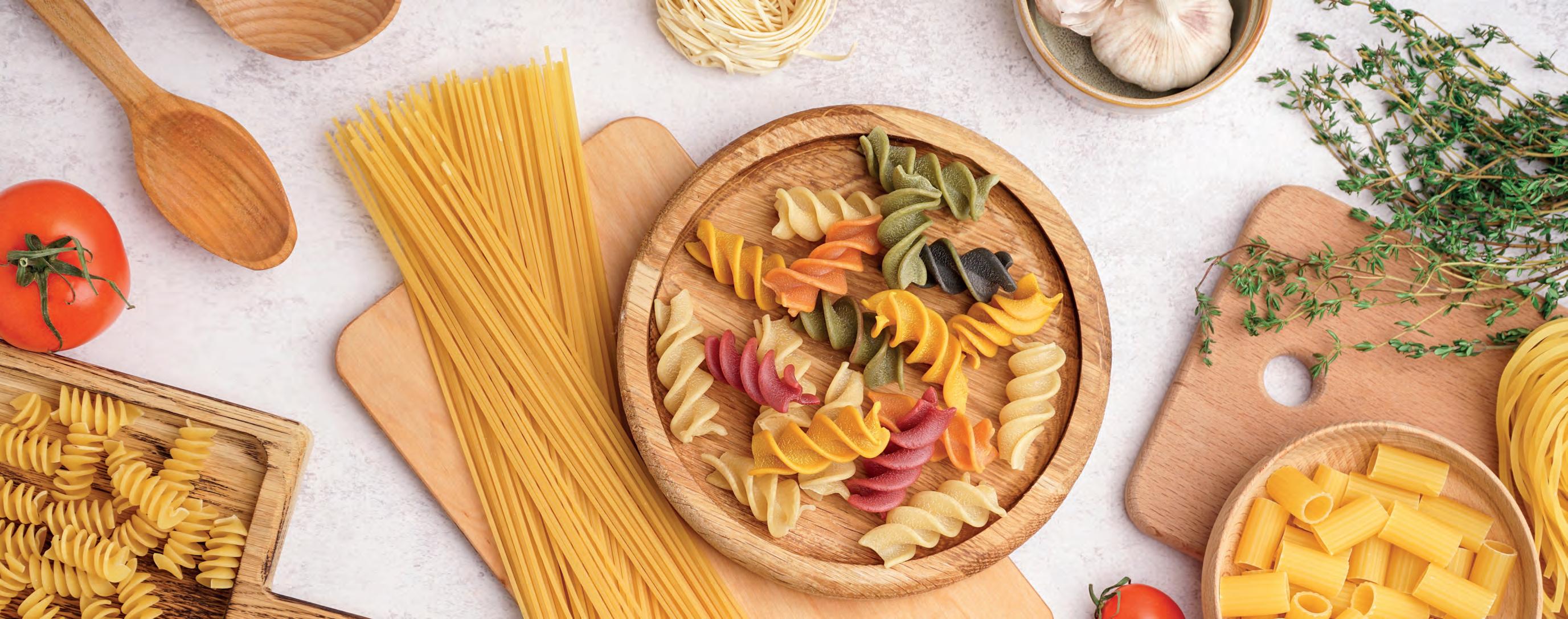


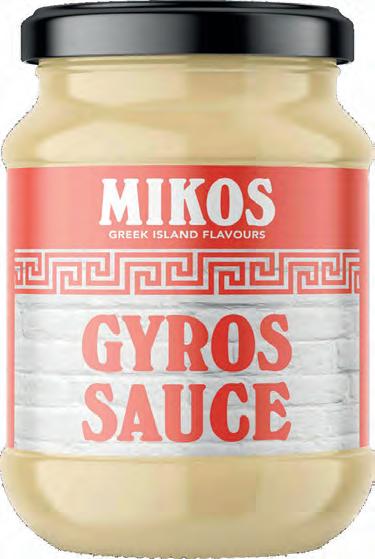
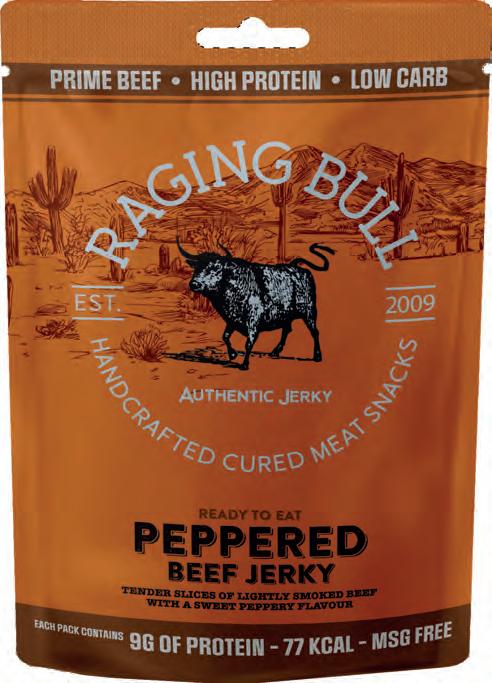



By Patrick McGuigan
Brexit, better technical support and rising farming costs are some of the factors fuelling a surge in new British cheeses, according to industry insiders.
The trend was highlighted at a celebratory meal organised by the Specialist Cheesemakers Association (SCA) with Jamie Oliver at his Covent Garden restaurant in January, where five new cheeses were highlighted on the menu. These included Lowfields Lancashire, Pevensey Blue, Yr Afr goats’ cheese, Wandering Ewe and Corscombe camembert.
Other recent launches include: the washed rind Raedwald from Fen Farm Dairy; the Crottin-style Shilling from White Lake; and several new cheeses from King Stone, including the Alpine-style Burford and sheep’s milk cheeses Bibury and Hidcote.
“We’ve seen a few people exit through retirement, but the biggest reason (for new cheeses and cheesemakers) is that the cheese scene is a really exciting place that creates a snowball effect,” said SCA chairman Jonny Crickmore. “People aren’t scared of making any kind of cheese now. There’s a good network around the SCA for support and help.”
He also said that Brexit could

be encouraging cheesemakers.
“With more challenging times getting Continental cheeses into the UK, there’s more hunger and desire for British cheeses.”
Neal’s Yard Dairy buyer
Bronwen Percival said it was often easier for businesses to start with Continental styles. “There are a lot more technical resources, including French consultants and starter companies like Standa that are making a big push to enter and support the UK market.”
She added: “I’d like to imagine that the SCA and School of Artisan Food have made it easier for new entrants.”
Burt’s Cheese in Cheshire has just launched a new blue Cheshire, wrapped in cidersoaked vine leaves, called Bidlea Blue. Cheesemaker Claire
Stilton and British blue cheeses had a bumper Christmas, according to the Agriculture & Horticulture Development Board, which said sales volumes grew by 15% in the two weeks to 28th December, compared to 2023.
Somerset-based the Trethowan Brothers has decided to pasteurise Gorwydd Caerpilly for the time being, after the farm it buys its milk from moved the herd to a new milking parlour. Pitchfork Cheddar will continue to be raw milk.
Weardale Cheese in County Durham has shut down. Owner Simon Raine said “the time was right” to close the business, which was based at a former prisoner of war camp near Crook.
Burt said the cheese came about from taking part in the Academy of Cheese’s Affineur of Year competition.
“That gave us inspiration,” she said. “Covid and the big rise in costs have been difficult for cheesemakers, so I think some of this is a reaction. We’re trying to be more proactive and less reactive.”
SCA secretary Sian OliverGay said that pressure on farmers was also a factor. “Milk producers struggling with increased feed, fertiliser and fuel cost volatility, coupled with new and developing environmental regulations, not to mention increasing staff costs and difficulties hiring, mean that added-value for core commodities needs to be sought.”

An award-winning French film about a young Comté-maker will be released in the UK next month. Holy Cow, a comedy drama directed by Louise Courvoisier, is set in the Jura village where she grew up. It tells the story of a young man who attempts to provide for his sister after their father’s death by entering a competition to make a worldclass, award-winning Comté cheese. The film, which won the Best First Film and Most Promising Actor categories at the Lumiere Awards, is released on 11th April.

One of Italy’s most famous cheeses, Gorgonzola Dolce is made in the Lombardy region of Italy with pasteurised cows’ milk, where it is aged for around three months. Its sweet flavour and gooey texture make it a versatile cheese on the board and in the kitchen, matching with a variety of condiments and drinks, as well as in recipes.
Gorgonzola’s sweet and salty character is turbo-boosted magnificently by a drizzle of salted caramel. A wodge of the blue cheese on a digestive biscuit with a lick of salted caramel spread (or dulce de leche) to finish is an instant dessert canapé. Halen Môn Salted Caramel (which won a 2-star at Great Taste 2024) is a good choice.
The creamy richness of Gorgonzola is offset nicely by the bitter crunch of radicchio leaves. Load the cheese onto a fresh leaf with a sprinkle of walnuts and a drizzle of honey to make a simple starter or grill the leaves and make a salad with roasted hazelnuts and rocket, then mix with a blue cheese dressing.
Moscato d’Asti
The bubbles of sparkling wines are a great foil for Gorgonzola because they clean the palate between mouthfuls. But the salty, spicy cheese also contrasts nicely with the honey flavours of dessert wines. It’s why Gorgonzola is so good with the sweet sparkler Moscato d’Asti from Piedmont. The fizz is refreshing, but there’s also a grapey sweetness that wraps round the mineral notes.
By Patrick McGuigan
Scotland’s Strathearn Cheese has shut down production and has been put up for sale after being hit by rising costs and difficulties in finding new larger premises.
The Perth and Kinross company, which made the whisky-washed Strathearn and the soft cheese Wee Comrie, had reached capacity at its production site in a Nissen hut at Cultybraggan - a former Second World War prisoner of war camp.
Owner Pierre Leger told FFD the businesses needed to expand to meet rising milk and labour costs, but suitable premises could not be found.
Production was shut down at the end of January with the loss of five jobs. The company is up for sale with discussions taking place with an interested party.
“Milk prices went from 73p to 80p/litre and the upcoming rise in the National Minimum Wage led to some interesting chats with my accountant,” he
CHEESE IN PROFILE with

What’s the story?
Cabrales PDO is fiery blue veined cheese originating from the Picos de Europa mountains in Asturias in Northern Spain. It is produced by small scale traditional dairies in 20 or
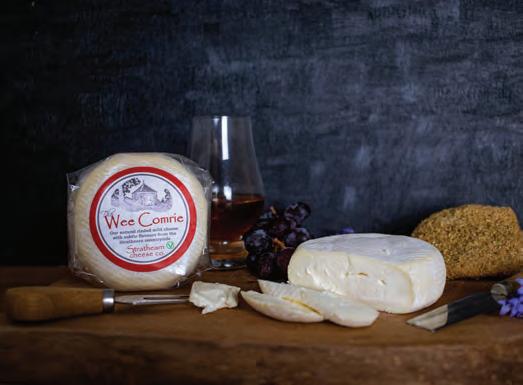
said. “We needed to grow the business, but I just couldn’t find the right space for what we needed.”
Leger, who is from the Loire Valley in France, previously worked for fine food wholesaler Clarks. He set up Strathearn in 2016 with business partner Drew Watson, who retired last year.
“I was already working 10 hours a day, six days a week,
so villages in the Cabrales and Penamellera Alta districts of Eastern Asturias, whose livestock graze on the mountainous pastures. The PDO stipulates that it is made from raw cow’s milk or a seasonal blend of cow’s, goats’, and/or sheep’s milk.
How is it Made?

and to expand further would have meant an even bigger commitment,” he said. “ I’ve done what I wanted to do and have absolutely no regrets.”
Wee Comrie was the company’s best-selling product. The small soft cows’ milk cheese was named Champion Cheese at the 2022 Royal Highland Show and won a 3-star at Great Taste last year.

Animal rennet is added to the milk and kept at 22–23°C for at least an hour to encourage limited growth of lactic acid bacteria. Coagulation takes 2-3 hours before the curds are cut into even sized pieces of 1-2cm, placed in cylindrical moulds and left to drain for 2-4 days.
Then they are salted and left for a further 12 hours, turned again and sprinkled with more salt.
After this period, they are taken out of the molds and are left to air for around two weeks. Finally, they are placed on wooden shelves in limestone caves and matured for up to five months, where the cool temperatures (6–10°C) and high humidity (≥90%) provide ideal conditions
Katie Baird, deli manager, The Larder, Yelverton, Devon
After what has felt like a very long winter, spring is here (in theory), which is an opportunity to give the cheese counter a new lease of life.

At the Larder Yelverton, Katie Baird is already upping the number of goat and sheep’s milk cheeses. “We try to bring people out of wintery washed rind and blue cheeses and go fresher, lighter and zestier with cheeses like Tor and Bibury,” she says. “We also get in seasonal cheeses, such as Wild Garlic Yarg, and flowery cheeses like Alp Blossom.”
Plans are also afoot to supplement the cute felt mice used as visual props with felt sheep and goats, as well as highlighting cheeses in the shop’s new ‘cheese of the month’ feature. This involves showcasing one cheese with interesting pairings in reels on Instagram and Facebook, and in the shop with tastings and on blackboards.
“We started with [mixed milk] Carboncino with a local honey on a sourdough digestive, and we plan to focus on with what’s new or seasonal going forward,” says Baird. “It’s gets the team involved and customers love it when we change things up.”
for the natural development of internal blue mould. Historically, the ripened cheeses were wrapped in sycamore leaves (Acer pseudoplatanus) to facilitate handling at markets. Today, this has been replaced with food-grade wrapping paper and foil.
Appearance & texture:
The natural rind is thin and slightly slimy, with shades of orangey-brown or grey. When young, the texture is crumbly and as it matures it becomes creamy with a

pleasant grainy quality. Cabrales boasts a bold and complex flavour profile, blending spicy, salty, and savoury notes.
Variations:
None
Cheesemonger tip:
The intense salty tang of this cheese is perfectly complemented by the sweet raisin notes of Pedro Ximénez sherry or a fruity cider from Asturias. Delicious with fresh figs, salami and dry sausage.
Chef’s recommendation: Cabrales PDO is wonderful as a base for sauces that include thyme and olive oil or alongside a grilled tenderloin steak and crusty bread.



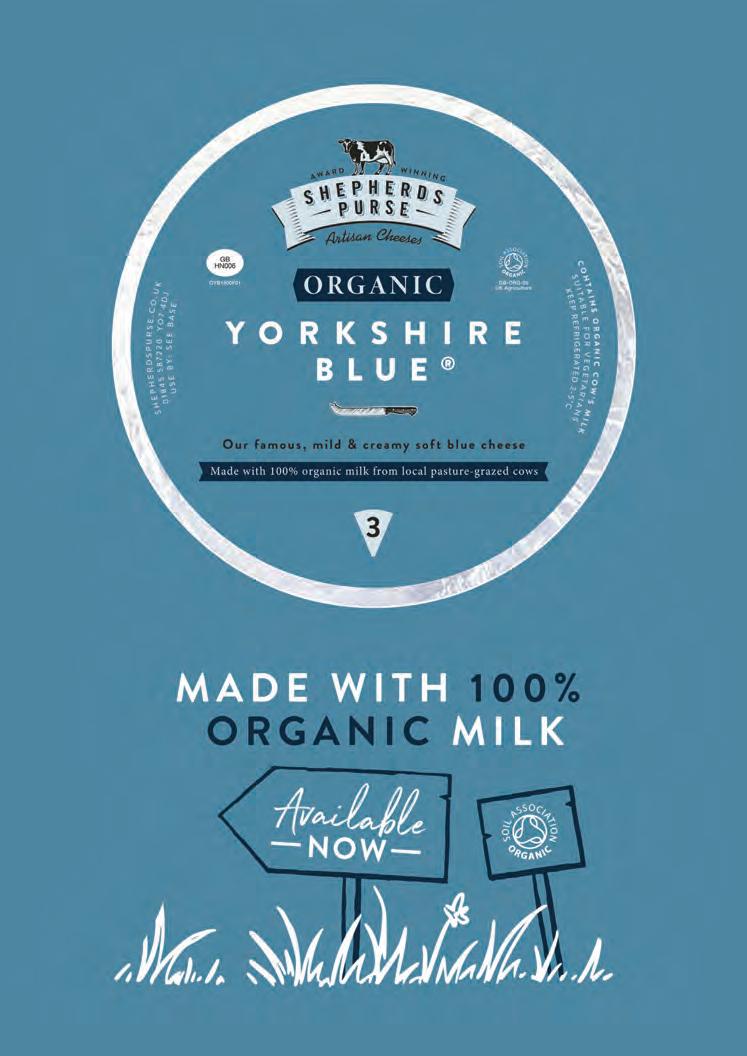





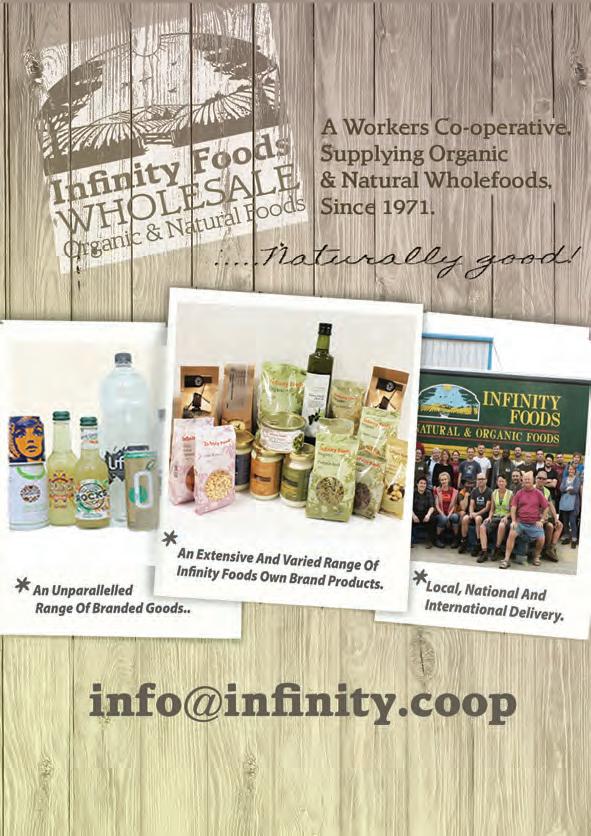



12-13 May 2025
If you’re a delicatessen, farm shop, retail, hospitality or foodservice buyer, there is no better place to visit.
You’ll find a huge a range of exciting new food & drink product launches to get your tastebuds tingling.
Attending NOPEX is how we understand what’s out there. There are loads of products and brands here so there’s something for everyone. It is the place for innovation!”
WAITROSE
REGISTER FOR YOUR FREE TRADE TICKET
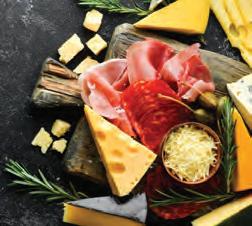



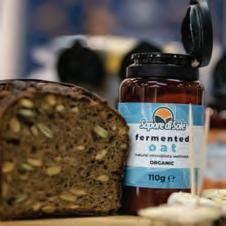




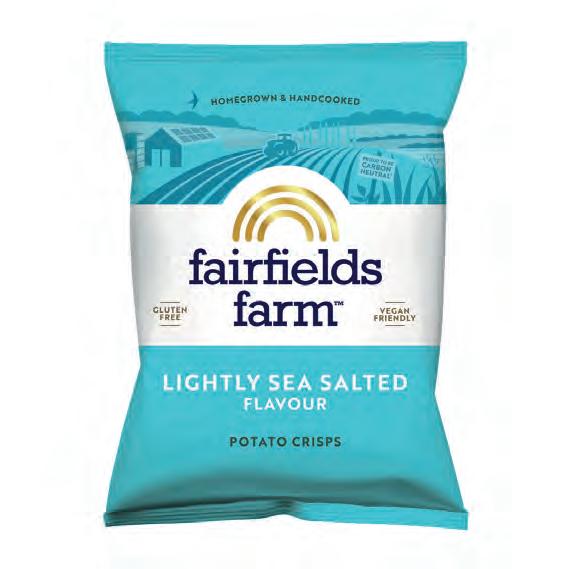
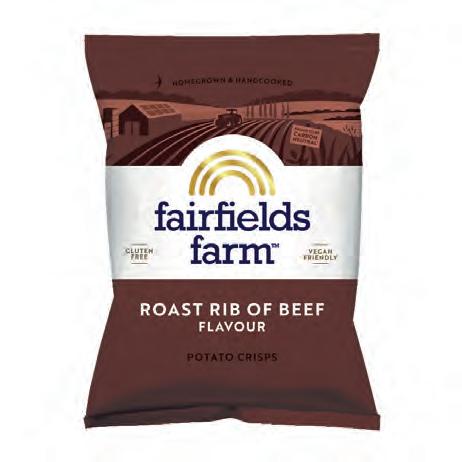


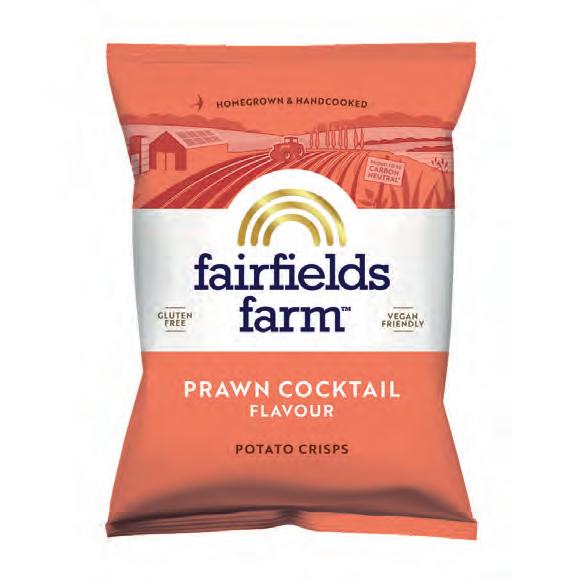
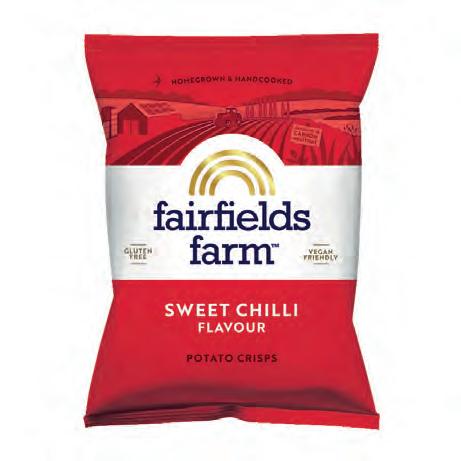


By Tanwen Dawn-Hiscox
Drinks producers using glass bottles fear that they will bear an unfair share of the cost of the Extended Producer Responsibility (EPR) scheme, due to come into effect in the autumn.
From 1st October, businesses with an annual turnover of £1m or more producing more than 25 tonnes of packaging waste a year will be expected to cover its collection, recycling, and disposal.
While PET and metal are exempt pending the establishment of England’s Deposit Return Scheme (DRS) in 2027, glass will face immediate charges.
The Food & Drink Federation (FDF) has estimated that EPR will cost businesses £1.1bn in its first year, telling FFD that it supports the scheme,“as an opportunity for the UK to develop a world-class recycling system and a circular economy for packaging”. It has, however, made its backing conditional on committments to recycling infrastructure improvements and for fees collected to be ringfenced for recycling.
Meanwhile, drinks makers selling products in glass bottles told FFD that they will either need to absorb the cost of EPR or put their prices up. They argued that as other materials than glass are exempt, many will be forced
to shift to cans at their own cost.
Will Fugard, founder of organic beverage brand, Gusto Drinks, said EPR punishes businesses already committed to sustainability.
“We’ve been ahead of
to pay £240 per tonne of waste, a rate which could be adjusted upwards in June.
“To give you an idea, on a 750ml bottle, which weighs 450g, that’s 11p on the glass alone,” he said, to which are added fees for the
definition of an SME, “a small business is up to £5m in revenue – so they’ve put in a sort of protective area, as it were, but it doesn’t touch the sides.”
Many producers, like cider maker Healey’s – who

the recycling game for a while. We use the highest percentage of recycled glass, we don’t have plastic on outers, we put a lot of money and effort into being on the right side of the argument when it comes to packaging waste. So it’s frustrating to have this heading towards us.”
Belvoir Farm boss Pev Manners echoed this sentiment. Despite using real ingredients and applying sustainable practices, he said his business was being targeted for using glass. Under the new rules, it will be liable

box and cap. Meanwhile, producers using PET and aluminium still only have to pay VAT. “To me, it’s staggering that EPR does not include plastic and cans,” he said.
“PET is hardly recycled at all in this country, 58% is incinerated, leaving microplastics all over the countryside – whereas glass is 80% recycled and could be more if they got their act together on recycling.”
While the £1m turnover threshold was ostensibly set to protect small businesses, Fugard pointed out that according to Defra’s own
is, incidentally, putting some of its drinks in cans to offset a £700,000 bill – face six-figure EPR costs. Others, like Belvoir, are looking at bigger tax burdens than their annual profits. “Last year, our declared books on Companies House showed a profit of £900,000,” Manners said. “This is £1m of extra cost. So we have to hand it on.”
Belvoir will likely switch to selling more canned drinks, while Gusto is still considering the move. Both will ramp up exports as EPR won’t apply abroad.
But here in the UK, Fugard said the tax would be “whoppingly inflationary”, fearing the impact this will have on retailers’ decisions.
“We’re already seeing speciality retailers and cafés going back to putting Coke and Fanta in their fridges because they’re worried about margin. They’re moving away from brilliant speciality products already.”
The FDF, Fugard and Manners have also raised concerns that EPR could generate tax revenue that isn’t put towards recycling. Manners said he had it “on good authority” that Defra is already allocating funds before improving infrastructure.
“It just wants money for local authorities. They’re collecting it from wherever they can get.”
Fugard still has hope that Defra might temper its approach. “All we’re asking for is a little bit more nuance and accommodation in food policy,” he said.
“The solution for this is simple. It’s about creating a level of exemption for SMEs so that we can thrive and do what we’re good at: innovate, bring out new products and export our products all over the world.”
“Tax the big players who are in a much better position to pay those taxes by dint of their scale. What this legislation does is it really harms businesses that don’t have that scale play, that very big multinational scale play.”
Retailers who want to refine their knowledge of cider are invited to sign up for the Certified Cider Programme’s Level 1 Certified Cider Guide course.
The workshops will take place at the Museum of Cider in Hereford on 26th March to coincide with the CraftCon trade show, and at the Highbury
Brewhouse Kitchen in London on 8th May. They will be taught by cider educator, writer and podcaster Gabe Cook, a.k.a The Ciderologist, who developed the course with customer and trade professionals in mind.
It will cover topics such as apple and pear varieties; cider production; and how to evaluate, keep, serve
and pair cider. Participants will receive a study guide ahead of the workshop, with the day consisting of a presentation, questions, a structured sensory assessment of three ciders, and the exam.
The course is priced at £150, but a 15% discount is available to Guild of Fine Food members. theciderologist.com

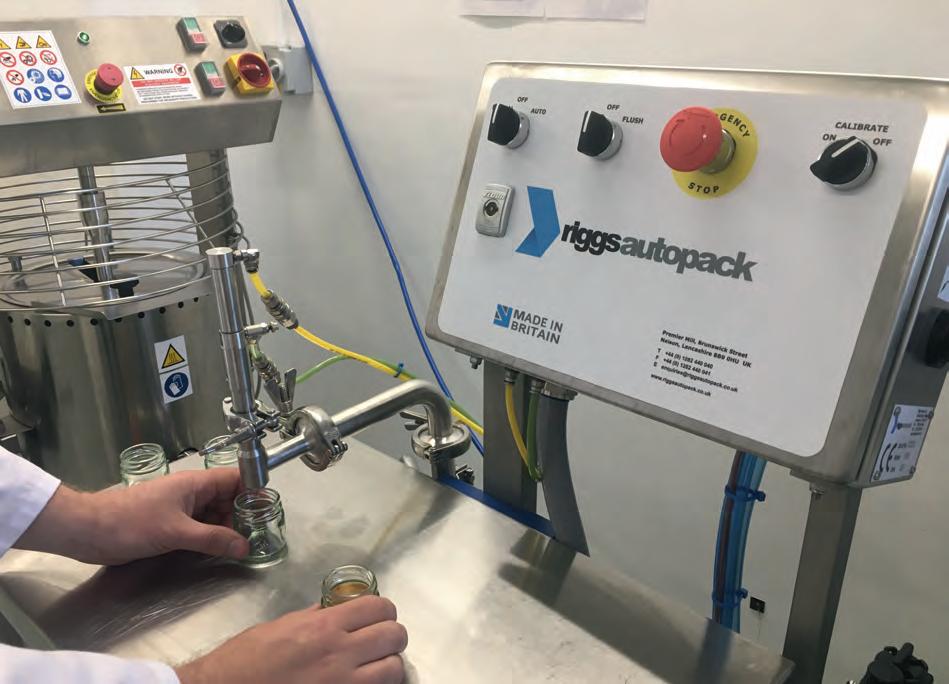
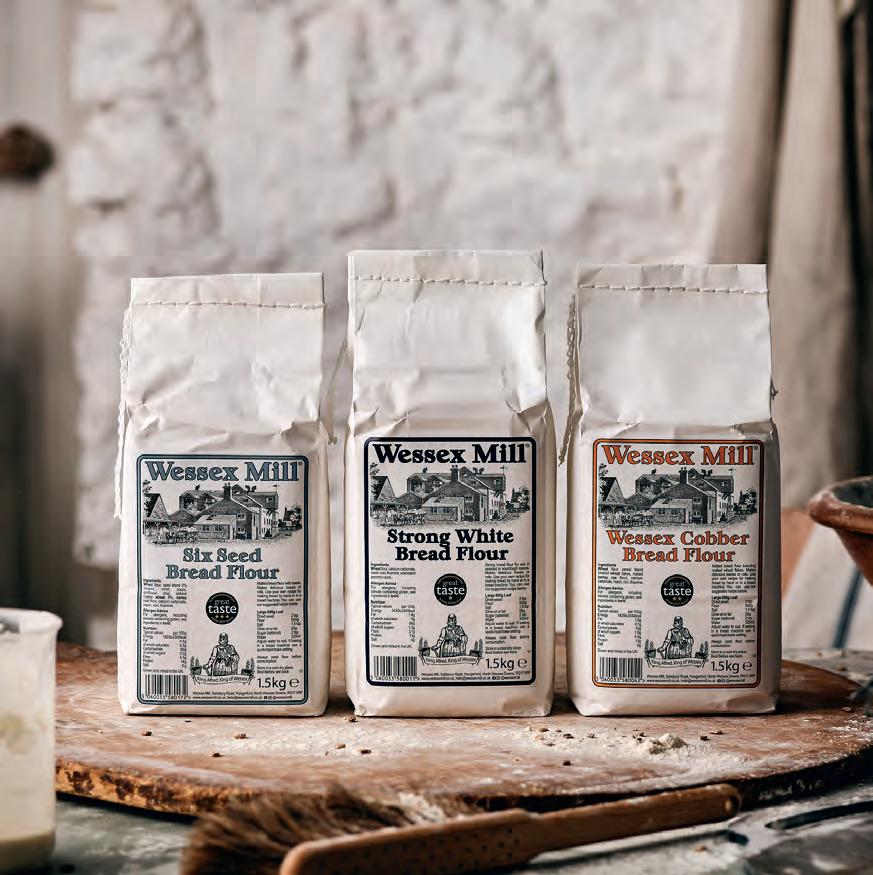
British artisan flour made with more than 125 years of milling passion.
Wessex Mill is an artisan flour brand milled in the heart of the beautiful North Wessex Downs. Family-owned, its milling history in Wessex goes back more than 125 years.
All wheat grain for our British flours come from trusted local Wessex farmers, some we have worked with for generations for their commitment to great quality.
Milled slowly and in small batches, altogether this makes flour with real heritage and provides excellent baking results for home and professional bakers alike.
www.wessexmill.co.uk

Done well, foodservice can complement your retail business, increasing both sales and footfall. However, it can also drain your resources, or become a distraction from your core offer. Here’s some advice from retailers who have found the sweet spot.
By Tanwen Dawn-Hiscox
HAVING A CAFÉ, food-to-go offer or even a full-service restaurant as part of a retail business is very common these days. Some would even say it’s the only way a shop could succeed in 2025. But, as is the case with retail, there isn’t a one-size-fits-all solution and every aspect needs to be considered and honed to work alongside the shop itself.
Laura Roberts, the owner of Laura’s Larder in Orpington, was initially reluctant to have a kitchen in her shop. She wanted to run her business strictly as a retail operation; but soon realised that doing so would make her an outlier.
“I spent six months travelling around delis, researching, and I noticed it was very rare that a deli didn’t have a coffee machine,” she tells FFD. “In fact, I could probably think of two.”
Embracing the idea, she installed a simple kitchen and decided that home baked cakes would give her a unique selling point by allowing her to avoid buying them in from wholesale bakeries.
From there, her offer grew organically. She introduced sandwiches, using cheese and deli items from the counter, and bread from local bakers.
“We now also do lots of like grab-andgo salads and things like that in the fridge,” she says. Complying with food safety rules is crucial with these, she adds, “so I’ve got a printer in the kitchen so that when I make something, I can make a legal label and stick it on it.”
Making foodservice part of the business did come with its own set of financial considerations for Roberts, which apply to retailers of all sizes.
She originally wanted – and still hopes – to offer sandwiches to order, letting customers pick items from the counter, “but there’s a pricing issue there, because if you’re just adding together the cost of the ingredients, you’re not thinking about the cost of the preparation, or how much it costs to run a kitchen, especially the energy.” Instead, she has opted for a
streamlined, seasonal sandwich menu.
Despite her initial reservations, it’s fair to say that Roberts has made foodservice work for the business. Hot drinks – mainly coffee – are now her third biggest revenue stream, and lunch the fourth. Much to her satisfaction, weighed items like cheese, charcuterie and olives form the top selling category, and bakery items including the homemade cakes come second.
Coffee performs highly at Farmer Copleys, too. At the West Yorkshire farm shop, foodservice is offered at a much larger scale, as part of a vast operation developed over two decades. Across Copleys’ many moving parts, customers can always buy a hot cup of joe.
“Coffee culture is really in,” director Rob Copley tells FFD. “We sell an awful lot of it, and it brings significant footfall to the business.”
However, integrating foodservice has required careful planning over the years. When the Copleys opened Moo Café within the farm shop in 2009, it was so popular that they found

If you’re just adding together the cost of ingredients, you’re not thinking about the cost of preparation, or how much it costs to run a kitchen.
Laura Roberts, Laura’s Larder
that customers were visiting in numbers, filling up the car park, and inadvertently disrupting the retail side of things.
“We used to look really busy because the café was full, but there was actually nobody shopping,” explains Copley. “I did a bit of research, and the percentage of people that were going in the café and also going in the shop was very small, so they were either coming for one or the other.”
So, in 2016, they built a separate building (and car park) for the café, thereby eliminating the threat congestion posed to sales.
“One car park’s nearer the shop, one car park’s nearer the café,” Copley says, “so the café can be absolutely rammed, but the shop still does well. People still come to the shop because it doesn’t have that chaotic feeling of being busy. They’re purely footfall drivers for each other.”
This move also allowed them to expand the retail space and diversify the foodservice

The café can be absolutely rammed, but the shop still does well, and people can still come to the shop because it doesn’t have that chaotic feeling of being busy. They’re purely footfall drivers for each other.
Robert Copley, Farmer Copley’s
offering – so as well as a café, they now offer food-to-go and have a 120-seat function space. They also introduced a production kitchen, where they make and sell honey, jams and ice cream. All of these elements serve the end goal of integrating retail and foodservice customer bases.
Cross-selling is indeed one of the major benefits of having a foodservice offer – and one shared by Tom Newey at Cobbs.
Unlike Roberts, the CEO of the four farm shops – three of them located near Reading, in Hungerford, Winchester and Englefield, and the other in Stratford-Upon-Avon – always saw foodservice as part of the business model.
“Of course, we first and foremost want to be grocery retailers,” he tells FFD. “That’s always been our overarching reason to exist. But we’re also trying to create an experience.”
“Getting people in, keeping bums on seats, having a wonderful opportunity to crosspromote delicious products.”
And in contrast to Copley, Newey specifically wants the shop cafés to be inside the farm shop, to create synergies between the two.
“If we’ve got people in the building, they’re much more likely to go and spend in either area,” he says. “If they’re coming into shop, they’re much more likely to pop in for a coffee or a takeaway if that café is right there than if they have to go into another building.”
“But much more importantly, the other way around, if they’re coming in for lunch or breakfast in the café, we definitely want them to go out through the shop and grab something en route.”
As well as driving footfall, foodservice can help reduce food waste, as chefs can make use of ingredients in imaginative ways when they’re unlikely to sell well in retail.
“Say our cucumbers are a little bit scraggly on the ends, we can make a Greek salad or something,” says Roberts. “Maybe I overpurchased something because I thought it would sell really well and it hasn’t, so then I make some specials out of it. And that works really well.”
This can be overstated, however, and Newey warns that it’s probably best not to rely on it as a significant new source of income.
“There are benefits to it,” he says, “but funnily enough, the chefs are not that excited when you turn up with a melon and three tomatoes and tell them to make a stunning dish.”
“You do get those moments of brilliance where there’ll be a tray of carrots or something that you can work with, but more often than not it’s odds and sods that are impractical to use.”
Whereas changes in your retail offer take time, foodservice does make it easier to adapt to trends and customer preferences quickly.
At Farmer Copleys, that means offering “nothing too posh” – simple, familiar foods like hog roast sandwiches and lasagne.
“We just had confit of duck on there and that was almost too posh,” Copley says. “It didn’t sell particularly well.”
At Cobbs, where the lunchtime trade is
Café operators looking to add a gourmet touch to their menus might consider this Octopus Carpaccio from Belgian producer Octopus World. Supplied vacuum-packed in 500g pre-sliced rolls (approx 36 x 1cm slices), this cooked and pressed octopus can be plated up as a quick and interesting starter or used in canapés or small plates. octopusworld.eu

Launched last year, New Forest Shortbread’s handy Snack Packs are ideal for a number of occasions, both in retail and foodservice. Whether retailers merchandise them alongside a hot drink in their cafés or place them in the eyeline of on-the-go snackers, these two-piece packs are a good way to introduce consumers to the wealth of flavours it offers. These include Original, Chocolate and Raspberry as well as more unque varieties like Coffee, Earl Grey and Rosemary. newforestshortbread.co.uk


Single-origin dark chocolate brand Cox & Co has created a new bite-sized 15g bar (wholesale price 70p each, RRP £1.25). Available in four flavours – Miso & Caramel (47% cocoa), Blood Orange Crunch (60%), Mint Crunch (60%) and Plain Milk (41%) – the bars are aimed at retailers’ grab-and-go offers. coxandcocacao.com
Over the past 12 months, Lara’s Tarts and Friands has introduced several new flavours, including the Cherry & Chocolate Friand. Made with dark, rich chocolate (54% organic cocoa) and luscious fresh cherries, this cake pairs well with coffee, making it ideal in café settings or for taking away with hot drinks. Trade price £2 per unit. larastartsandfriands.com

Cumbria’s Winter Tarn Dairy is now offering its 10g foodservice salted butter portions via Pioneer Foodservice, which supplies businesses across the North of England and southern Scotland. The individual portions of butter were launched back in 2021 and have proved popular with buyers across the UK ever since.
wintertarndairy.co.uk







Our award-winning flour is produced from the finest ancient grains which are sustainably grown in the beautiful British countryside. Our entire range carry the highly sought after Great Taste 2 and 3 star awards, in recognition of outstanding quality and flavour.
Available in 1kg and 20kg bags. Minimum order 2 boxes of 10 × 1 kg bags. No delivery charges. Call or email today for a trade price list
629 529 | info@craggsandco.co.uk | www.craggsandco.co.uk


Did you know that the fastest way to grow your brand in 2025 is to personalise your merchandise? In fact, make it really clever and you may even set a trend!
Whether you're the big cheese in your fab new deli, are opening a farm shop or know the ins and outs of a good bottle of wine, it's time to let your products speak for themselves. And our talented team is expert at helping you do exactly that!
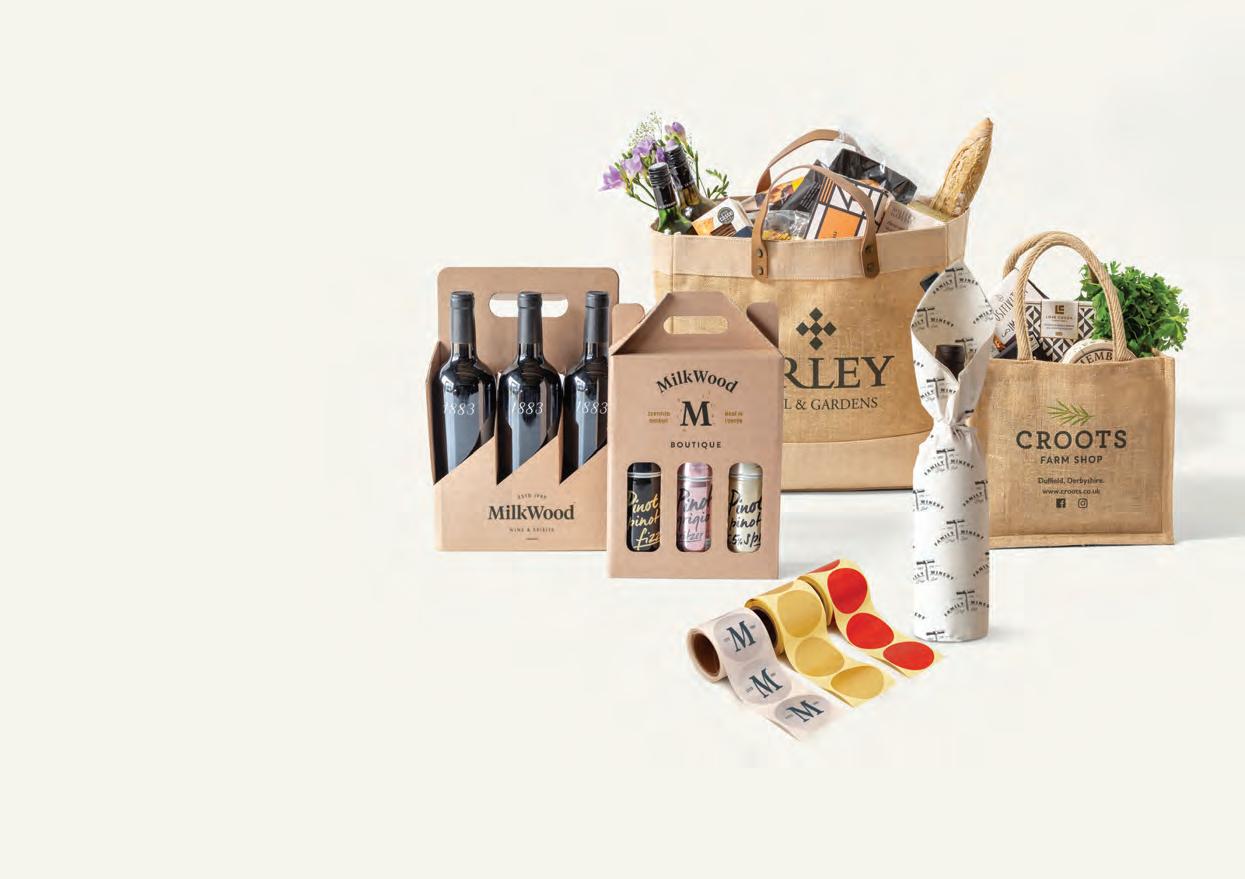



























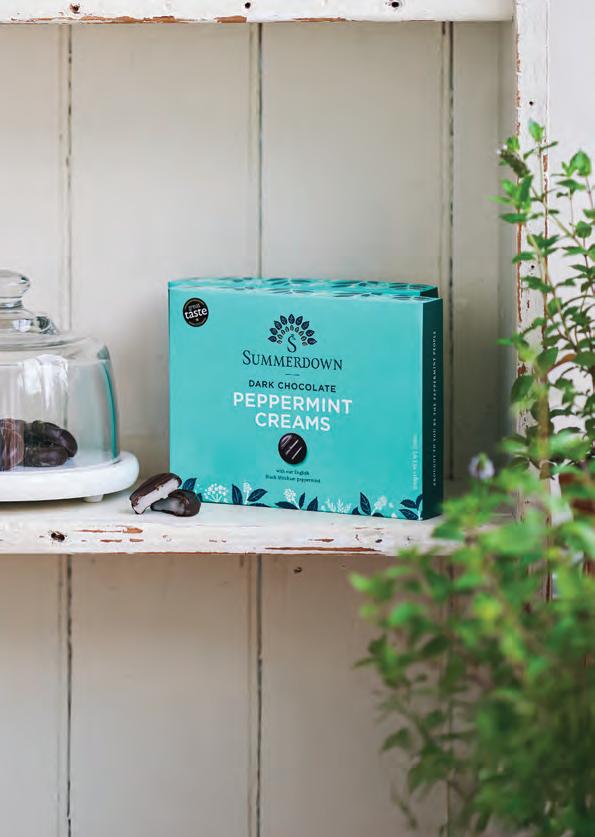




driven by older customers, classic favourites also make up the bulk of the menu.
“The sorts of things that you and I might like to eat probably don’t make the menu in favour of things that we know will cater to the demographic that we primarily serve,” Newey says.
At Laura’s Larder, Roberts has noticed that the first sandwich order of the day sets the tone, which has shaped her offer.
“If someone orders one of my smoked chicken and avocado sandwiches, everyone will order a smoked chicken and avocado sandwich, so we have honed the menu down.”
Being able to adapt quickly has its advantages when it comes to changing customer habits, too. For example, Roberts has been able to follow remote work fluctuations as they have affected weekday footfall.
On quieter days, she uses her kitchen – and chefs – to make ready-meals for customers to pick up on their way home from the office, or batch bakes of cakes, so there is always something to do in the kitchen.
Maybe especially so in smaller, urban locations, the need to strike the right balance between foodservice and retail will be on many retailers’ minds.
Not all of your customers will want to use the café or restaurant, and you risk losing retail customers if your foodservice operation takes up too much precious real estate. It’s up to you to make sure they can operate successfully together.
“I don’t know where I’d be without sandwiches and lunch,” says Roberts. “But I do get upset when some customers come in, and they’re on their phone and they go, ‘I’m in the sandwich shop. I think, ‘oh, but look at all these beautiful products on the shelf’.
However, having multiple sites in different rural or semi-rural locations like Cobbs shows that there’s no exact science to determining the share or volume of retail sales compared with foodservice. Though Newey says retail accounts for 70% of overall sales across all sites, versus 27% in the cafés (and 3% in the ‘other’ category), the proportions vary across the four shops. And decisions aren’t made on the basis

of finding an ideal balance between the two.
“Obviously, we set budgets at the beginning of the year,” Newey says, “but It’s really just looking at what we think they’re capable of doing or where they need to be in terms of that sales profile.”
The benefits of having a foodservice outlet within your business are there – it can boost retail sales and footfall; it can create additional revenue and improve your customers’ experience. But it will also introduce operational complexities, as you’ll need to employ skilled staff and comply with food safety rules – and staffing is one of the biggest challenges.
Roberts previously took on a local college student on an apprenticeship scheme.
“That was wonderful, she did her full apprenticeship in the kitchen, became a qualified chef and she worked for me for a few years,” she says, but this option isn’t available anymore after the programme was cut. She now usually either opts for trained chefs or home cooks –who she puts through health and safety training – or, as it currently stands, fronts the kitchen herself.
At Cobbs, staffing has been a persistent issue, and the planned changes to NI payments have added extra financial strain.
“Finding staff has been a nightmare, frankly. That is getting a bit easier, but the recent budget is killing us all, it really is,” says Newey. “We’ve got about a quarter of a million in extra costs coming in from April. So there’s a lot of real challenges out there.”
One way to mitigate staffing difficulties is to make optimal use of your existing team. At Farmer Copleys, for example, the café staff take on the work in the functions space. And, as Copley has found, some types of events are easier wins than others.
“If we have a wedding on a weekend, you have to have extra chefs to get the wedding food ready, but you’re also trying to do it on top of a busy Saturday. Whereas funerals are Monday to Friday, and it’s always buffet food, really, so it’s just a bit of extra work for the chefs you’ve got in. And you can always use up a bit of waste, because we don’t specify the menu too tightly.”
With a shelf life of two weeks (refrigerated), Jolly Good Brownies are well-equipped for retail and foodservice operations. The current lineup includes Original, Salted Caramel, Chocolate Orange, After Eight and Gluten Free – all of which are made with free-range eggs, good quality chocolate and dusted with edible gold lustre. Available in boxes of 6 (trade £10), 12 (£20) or individual brownies (trade £1.50 each, RRP £3.50) in packs of 6. jollygoodbrownies.co.uk

Cheshire-based Harry’s is not just a hot chocolate producer – it is also a bakery that specialises in supplying independent retailers and cafés. Its latest lines are an Apricot Oat Slice (trays of 12 slices cost £17.5, RRP £2.65 per slice) and Pecan Tart (trays of 14 slice cost £24, RRP £3.00 per slice). harryshotchocolate.co.uk

Funnily enough, the chefs aren’t that excited when you turn up with a melon and three tomatoes and tell them to make a stunning dish.
Tom Newey, Cobb’s Farm
Make no mistake, deciding to introduce, expand, or improve a foodservice element in your business is not going to be a walk in the park financially. Running a café is complex, with high costs and tight café margins. All three retailers stress that poor cost control can easily turn a profitable business into a lossmaking one, and how crucial it is to estimate your pricing, margins, staffing and energy costs before you make the leap.
“So take time, get it right, don’t just think about what you think you might do,” Newey says. “Think about worst case scenarios as well. You really need to be prepared for things to go wrong because they can. And they can go wrong really quickly.”
For those considering foodservice but unsure where to start, he has one final piece of advice: “If I wanted to test the water, I would start with a really small, very low level of staffing offer that I could manage with as little overhead as possible. And I would let it grow organically.”

With the aim of saving chefs’ time, Mademoiselle Macaron is now supplying unfilled pairs of 6cm macaron shells in a variety of colours. These can be filled to suit menu requirements and this new format is also large enough to be used as a dessert in its own right. Prices start from 80p for pair of shells, which are made with free-range eggs and are also gluten-free. mademoisellemacaron.co.uk
The latest product from Crane Pâtisserie is a hand-painted and -filled Pear, Fennel & Tarragon flavoured Bon Bon. Filled with layers of milk chocolate ganache and a pear, fennel & tarragon pâte de fruit, this product has already won a prestigious Great Taste Awards 3-star.
Prices for Crane’s products are dependent on the on the product specifications and volume requirements. craneeventsltd.co.uk

Each tray of JubyLee Bakes’ Great Taste 1-star winning Ginger Allspice Cake is individually made by young adults with learning disabilities, autism and Down Syndrome. Enhanced with hand-cut pieces of stem ginger for added piquancy, this cake can be served at ambient temperature or warmed and served with ice cream. The whole traybake measures 28cm x 21cm x 4.5cm (trad £15) and easily cuts into 16 generous portions. jubyleebakes.org.uk

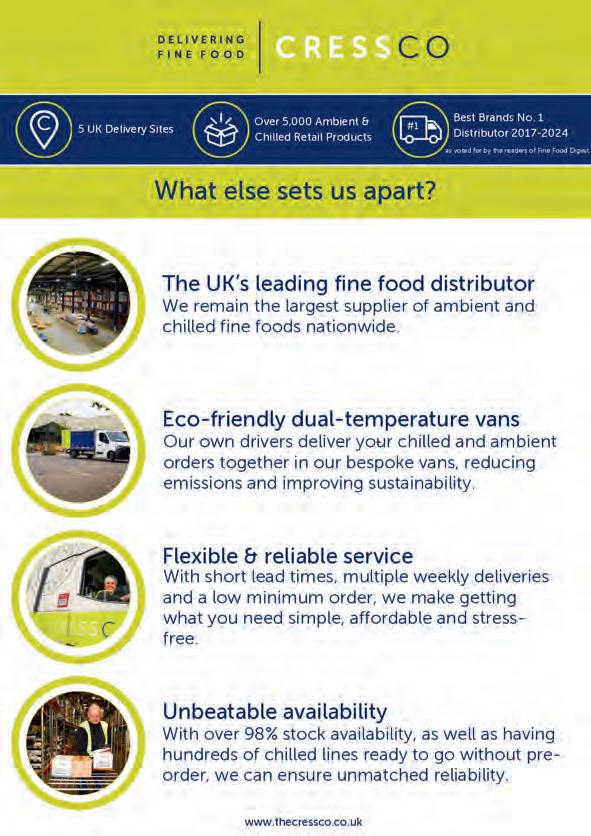

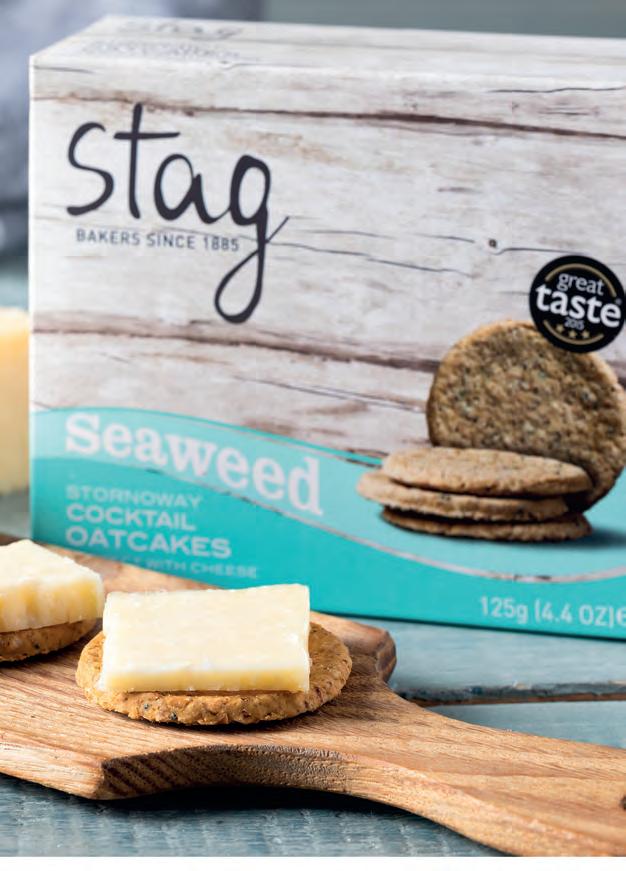


This month, the North’s café, coffee shop, and food-togo sectors will take centre stage with the launch of lunch! NORTH, a new trade show held at Manchester Central on 11th-12th March 2025
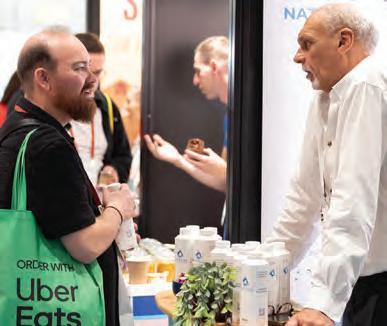
The café and food-to-go landscape is evolving rapidly, making it crucial for industry professionals to stay ahead of emerging trends. lunch! NORTH is the ultimate destination to explore the latest innovations in coffee, grab-andgo concepts, sustainable packaging, and more.

lunch! NORTH’s seminar program will host insightful debates on key challenges, such as rising operational costs, sustainability, and changing consumer behaviours. Panels will delve into trends in menu innovation, marketing strategies, and digital transformation, offering attendees practical takeaways to enhance their business strategies.


The event features a line-up of keynote interviews, panel discussions, and live sessions, offering attendees the chance to learn from some of the most influential figures in the industry, including Marta Pogroszewska (MD, Gail’s) and William Gordon-Harris (CEO, Knoops).

Beyond trendspotting and debates in the food-to-go sphere, the event will also provide attendees with plenty of opportunity to learn from the hospitality sector – thanks to the theatre program of the co-located Northern Restaurant & Bar show, which includes a host of industry debate as well as chef demos.
As the North’s premier gathering for café professionals, lunch! NORTH provides an unmatched opportunity to connect with industry peers, potential partners, and key suppliers. Whether you’re a seasoned operator or a new entrepreneur, the event fosters an environment where you can exchange ideas, collaborate, and build lasting relationships.

lunch! NORTH, together with the Northern Restaurant & Bar show, will create an exhibition floor featuring more than 400 brands, showcasing premium food & drink, cutting-edge equipment, and the latest in sustainable packaging. Register for your free trade ticket at lunchnorth.co.uk 1 4 2 5 3 6
Britain is our biggest customer when it comes to bakery. Whether you’re craving a nostalgic afternoon tea or lunch-to-go, let us tempt you. We have all the griddle breads, scones, pancakes and traybakes you’d expect, perfect to enjoy with rich, creamy Abernethy butter or award-winning Dromona cheddar. Or how about sandwiches, wraps, pizzas, (Oh!) donuts and Biscakes? And we can make it gluten-free, so there’s something for everyone. Scrumptious. For more information on Northern Ireland’s wide range of quality and innovative bakery products, contact Michelle Charrington E: michelle.charrington@investni.com Soda farls, potato bread, Nutty Krust, Fifteens, Veda, butterfly buns, Joeys. Speaking your language?

to you by
Adventurous coffee, hand roasted in the West Yorkshire Pennines.
Wholesale coffee and equipment supply, with curated POS support.
Award Winning, beautifully presented retail coffees.
Barista training school and café consultancy.
Certified B-Corp, giving 2% of turnover to community projects.

darkwoodscoffee.co.uk
Holme Mills, Marsden, West Yorkshire, UK, HD7 6LS


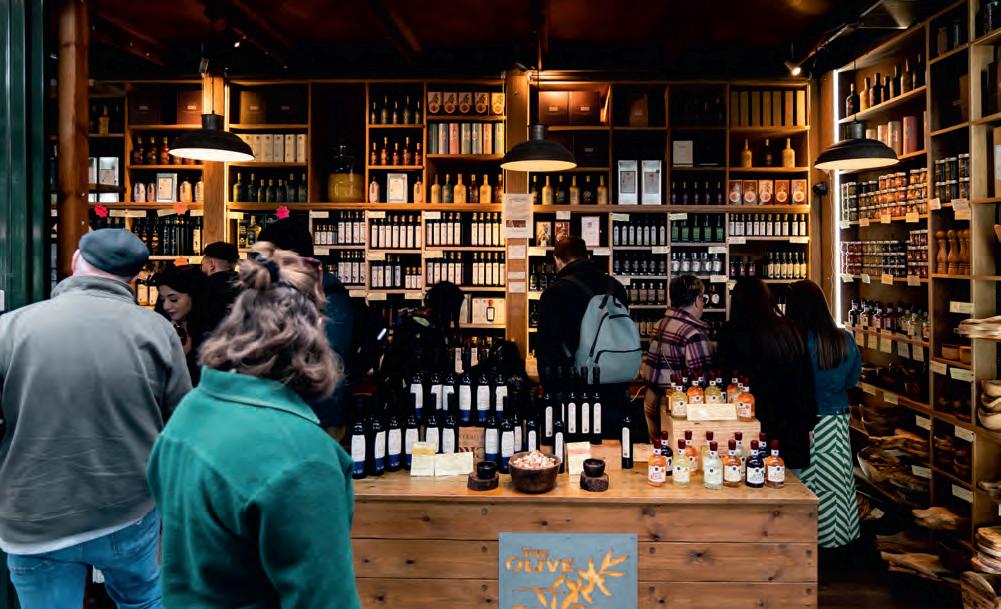

Whether you’re seeking to upgrade your hot drink offer or looking for something sweet to serve with it, this month’s category round-up has you covered – with a look at what’s new in tea, coffee, chocolate, confectionery and cakes.
Compiled by Lynda Searby

There is lots of noise around nootropics or ‘cognitive enhancers’, and one of the newest entrants in this space is Fungo The tea brand’s proposition is built around infusing functional mushrooms with ayurvedic herbal blends to promote mental wellbeing. Its inaugural product, Elevate, combines turmeric, ginger and tulsi with Lion’s Mane mushroom in a blend designed to increase focus and enhance memory. RRP is £15 for a box of 15 pouches; wholesale price £7.50. fungo.co
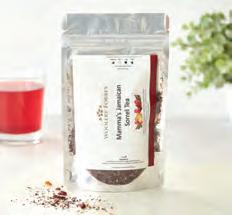
In the Caribbean, sorrel tea is prized for its rich, wholesome taste and high antioxidant content. Woolery Forbes has captured these attributes in a brew that is made from sorrel flowers, giving UK consumers the opportunity to enjoy a cup of Caribbean culture. RRP £10 for 100g; trade price £7. w-forbes.com
IVA Plants is a new brand with a focus on creating teas with natural ingredients for people who care about quality, flavour and the story behind the products. It offers herbal blends conceived to provide natural support in key areas of wellbeing, such as sleep, gut health, immunity and energy, as well as two black teas. RRP £7 for 20g; trade price £4.90. ivaplants.co.uk


Three new Sri Lankan loose leaf black teas from Steuarts Tea have just arrived in the UK, courtesy of House of Aromatic. English Breakfast uses leaves from the Udupussallawa and Dimbula high altitude regions; Orange Pekoe 1 is a premium Ceylon; and Flowery Broken Orange Pekoe is a broken leaf grade that delivers a potent brew. RRP £9.49 for a 100g caddy. steuartstea.com

Tea Tease has looked to East Africa for inspiration for its second traditional tea blend with a twist: Samali Tease. This blend combines black tea leaves with cinnamon, clove, and cardamom to deliver a rich, spiced experience that evokes the spirit of Somali culture. teateaseltd.com
Milk tea is an everyday drink for South East Asians, and now Hotea is bringing this tradition to the UK with a fusion product that combines the fragrance of Malaysian milk tea with the robust flavour of Hong Kong milk tea. The use of both evaporated and condensed milk on a Ceylon tea base ensures an authentic experience. Trade price £3.20 for 260ml. RRP £3.80. hellohotea@gmail.com


Shahida Aslam is a huge believer in the power of turmeric to ward off colds and illness. That is why, when her favourite brand of turmeric tea was discontinued, she launched Divine Teas Her flagship product blends turmeric, ginger, cinnamon, cardamom, fennel, liquorice and black pepper. Wholesale price for a 25g jar £7.35; RRP £16. divineteas.co.uk

Inspired by Japan’s purest river, Niyodo Blossom is a new women’s wellness tea label designed to help women through different life stages. Blends include Harmony Menopause Tea, Detox Booster Tea and New Mums’ Postpartum Tea. RRPs £8.9911.99 for 24 loose leaf servings. niyodoblossom.com
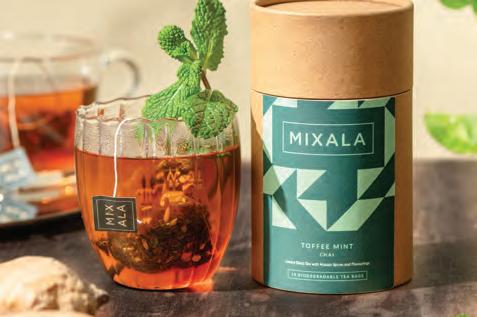
Mixala, a new tea brand that draws on its founders’ British, Indian and Tanzanian origins, is taking the chai spice trend to the next level.
“Mixala came from our own love for chai, blending healthy spices with tea. Our aim is to redefine chai by offering quality ingredients blended with adventurous flavours. This is a new and unique twist on traditional chai and our flavours create something different for every palate,” said Amit Kalley, one half of the husband-and-wife team behind the startup.
The producer’s range takes in four products: Cocoa Chai is a chocolatey fusion of cocoa shells, ginger and cardamom; Italian Biscuit Chai is a rooibos-based blend with notes of marzipan; English Rose Chai juxtaposes Assam black tea with rose petals, cardamom and cloves; and Toffee Mint Chai is a meeting of toffee, mint and chai spices.
The packaging has been designed with sustainability in mind, with biodegradable teabags, compostable pouches and recyclable tubes,
RRP is £7.25 (per tube of 15 biodegradable teabags); trade price £4.35. mixala-chai.com
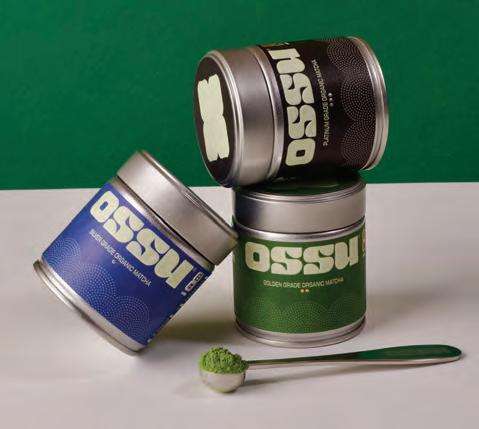
OSSU Tea has created a flavoured matcha range for those who love the benefits of matcha but struggle with its taste.
It says its aim is to make authentic Japanese matcha accessible to a wider audience, by catering to healthconscious consumers who are looking for functional, flavourful matcha options beyond traditional green tea.
Director David Ogg explained: “While traditional matcha has a devoted following, we know that its naturally bold, grassy flavour isn’t for everyone. By infusing organic matcha with ingredients like peppermint, lemongrass, ginger and turmeric, we’ve made it easier for more people to enjoy matcha in a way that feels familiar, delicious, and refreshing.”
There are four blends in the new range - Peppermint, Lemongrass, Turmeric and Ginger - all with an RRP of £18.95 for a 40g tin. These are available alongside the company’s traditional matcha grades. ossutea.co.uk
Main Street is a new entrant on the masala chai scene, created after its makers decided they had tasted too many instant masala chai products that were overly sugary and milky and lacking in flavour. This challenger brand uses whole spices to unlock richer flavours and doesn’t overpower with sugar or creamers.
RRP £3.50 for 10 sachets; trade price: £2.80 main-street.co.uk


Having built up a base of over 270 stockists in the US and Europe, Kazi Yetu is introducing its African teas and botanicals to the UK market. The B Corp was founded to empower farmers in Africa through the production of traceable tea blends that are sourced, blended and packed in Tanzania. The teas are harvested in the Usambara mountains and the spices come from Zanzibar. kazi-yetu.com

Over the last 12 months, brut tea has launched four single origin Chinese teas, sourced directly from Yunnan. The four styles – a white tea, a black tea, a green tea and a fermented black tea – all have an RRP of £15.99 for a box of 8 sachets. bruttea.com
Born out of owner Ken Duffield’s frustration with mediocre decafs, Craft Decaf has pledged to make decaf coffee more exciting. The Bristolbased startup launched in November with a focus on coffee that is naturally decaffeinated at origin, using techniques like the sugarcane process. This rare Castillo from Jairo Arcila in Colombia is one of its best sellers. RRP £13.50 for 250g. craftdecaf.com

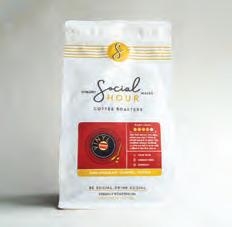
Located on Anglesey, Social Hour opened its doors last summer and has six or seven coffees on the menu at any one time, from blends to single origin coffees. The roastery’s top sellers include Vinyl, a “comfort classic” that blends Guatemala Bendicion and El Salvador El Borbollon. RRP £9 for a 227g industrially compostable bag; trade price £6. socialhourcoffee.uk
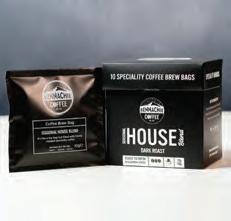
Bennachie Coffee likens its new coffee bags to “cafetière coffee but without the messiness of a cafetière”.
The compostable coffee bags are filled with the Scottish roastery’s dark roast 100% Arabica for a “quick and easy high quality brew”. RRP £10 for a box of 10 bags. bennachie.coffee
Moon Roast’s new Colombia Half Caff is said to deliver all the richness and complexity of a fully caffeinated cup but with only half the caffeine. A blend of Colombia San Sebastian and Decaf Colombia Riseralda, this medium roast coffee is suitable for all types of brewing including espresso. RRP £10.50 for 225g. moonroast.co.uk

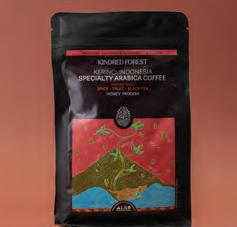
This speciality Arabica sourced from the foothills of Mount Kerinci in Sumatra demonstrates Kindred Forest’s commitment to sourcing rare coffees from remote regions while protecting biodiversity. The coffee is shade-grown in collaboration with farmerowned cooperative ALKO and consumers can trace the coffee’s journey from bean to cup through an onpack QR code. RRP £11 for 225g; trade price £5.50. kindredforest.co.uk
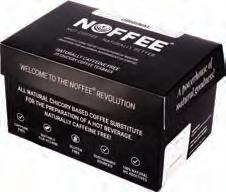
Following its success in ground and pod format, Noffee is now available in bags, with an RRP of £11.99 for a pack of 25 bags; trade price £7.20-7.85. Made from roasted chicory, Noffee is positioned as a caffeine-free coffee alternative for those looking to reduce their intake. noffee.co.uk


Two Chimps Coffee’s latest seasonal coffee, Calmer than a Banana, is an Arabica cultivated by the Aguilar family in San Salvador. The beans are medium/dark roasted to produce a dark chocolate profile with a nutty aftertaste. The Rutland roastery sources its beans via a small supply chain, paying 30-120% more than commodity coffee. RRP £10.45 for 250g; trade price £7. twochimpscoffee.com
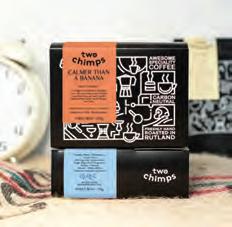

Cherry Kiss, Elsewhere Coffee’s special Valentine’s release, is a Caturra and Colombia blend that has been cofermented with freezedried cherries. This results in a flavour profile that is redolent of cherry pie when it is taken as a flat white, and cherry cola when served as a pourover. RRP £18 for 200g. elsewherecoffee.com

Mireia’s unique proposition is that all of its coffee blends are infused with real vanilla from its own farms in Singapore, which makes for an “aromatic and luxurious” experience. It currently offers five SKUs, all with an RRP of £25 for 200g; trade price £15. mireia.co
Rise & Grind has introduced filter coffee brew bags to give coffee lovers an option for making “a quality brew without the equipment”. The company says these single brew bags are ideal for anyone who is looking for convenience without compromise, whether office workers or outdoor enthusiasts. RRP £12 per box of 10 bags; trade price £7.50. riseandgrindroastery. co.uk


This year, Fire & Flow Roasters has launched Decaf Coffee Club - a dedicated brand for the underserved decaf market. It sources naturally decaffeinated coffees from all over the world, and roasts them in small batches with the aim of giving decaf drinkers the quality and variety they deserve. The Original One, the brand’s flagship product, has an RRP of £8 for 200g; trade price £5.20. fireandflowcoffee.co.uk

Grounded Coffee has introduced six decaf coffees under a new sub-brand to afford decaf drinkers greater choice. Six different origins, including Peru, Mexico Ethiopia and Guatemala, are represented in the Decaf Nation collection, which has an RRP of £8.50 for a 250g bag; trade £5.20. grounded-coffee.com
Peppersmith’s pouches have had a makeover and are now biodegradable, resealable and home compostable. Made with British mint from a farm in Hampshire and sweetened with tooth-friendly xylitol, the company’s sugar-free mints, gum and pastilles offer a conscious alternative to mass-produced brands. RRP is £3.49-3.99 for a 60g pack of Mighty Mints or a 50g pack of Mighty Gum. peppersmith.co.uk
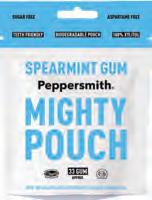

After eight years of fulfilling online orders for its Brazilian truffles, Emmy’s Brigadeiro has opened a shop and production kitchen in Old Hatfield, Hertfordshire, allowing the business to serve a wider audience, including delis and farm shops. Emmy’s Brigadeiro boxes come in a variety of sizes, and this year has seen the introduction of brigadeiro filled chocolate hearts as well as the brand’s first vegan brigadeiros. emmysbrigadeiro.com

Dorset chocolatier Levoco has teamed up with independent Weymouth roastery Fountain Rock Coffee to create Chocolate Coffee Beans. The roasted beans are hand-coated
Ocelot Chocolate has set out to deliver a comforting experience with its new Cinnamon Swirl chocolate bar. Cinnamon bun, freshly baked by Wild Hearth Bakery – a wood-fired artisan bakery in the Scottish Highlands – is combined with organic 42% milk chocolate made with rare Arriba beans from the Esmeraldas coast in Ecuador. RRP £6.99/70g; wholesale price £3.20. ocelotchocolate.com

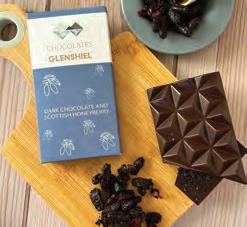
Chocolates of Glenshiel has released five new bars, spanning the complete chocolate spectrum. For lovers of dark, there is Dark Chocolate & Scottish Honeyberry and 71% Dark Chocolate, while those who like a creamier bar are catered for with 35% Milk Chocolate, 30% Gold Chocolate and 28% White Chocolate bars. All have an RRP of £6; trade price £2.90. chocolatesofglenshiel. com

Cottage Delight is bringing nostalgic charm to the confectionery category with Treat Co Sweet Shop Jars. The range features six varieties of old-fashioned boiled sweets: Sherbert Lemons, Rosy Apples, Traditional Humbugs, Rhubarb & Custards, Bon Bons and Pear Drops. RRP £5.99 (235-260g). thetreatco.co.uk
In Northallerton, chocolatier Ben Ellis has turned his attention to making allergen-free, diabeticfriendly chocolates from premium liquors and fresh ingredients such as puréed raspberries, mint leaves, ginger root, coffee bean, lemon juice and handmade salted caramel. His flagship Indulgence Collection is a mixed box of white, milk and dark chocolates; RRP £18; trade price £12.50. benellischocolatier.co.uk


Fudge Kitchen has unveiled a nostalgic confectionery range that “reimagines traditional flavours for the conscious consumer”. Featuring classics like Rock Salted Peanut Brittle, Raspberry Coconut Ice and Traditional Vanilla Fudge, the range is made with clean label ingredients and packaged in FSCcertified boxes sealed using water-based adhesives. Each SKU has an RRP of £7. fudgekitchen.co.uk
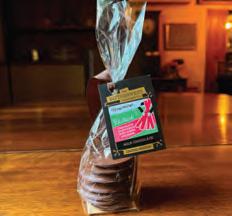

One year after launching in the UK, Marsel Delights has treated its lokums range to a packaging redesign. Known to most as Turkish Delight, lokum comes from the Arabic ‘easing the throat’. Marsel’s take on these ‘throat-soothing’ confections is free from refined sugar - sweetened instead with natural sugar from fruit - and contains no artificial colours or flavours. As well as streamlining its messaging with the new packs, Marsel has increased the net weight from 85g to 99g (nine cubes). The lokum comes in four flavours: Pistachio, Rose with Blackberry, Pomegranate with Raspberry & Sumac and Hazelnut with Caramel. The range is available to the trade via Diverse Fine Foods, Suma and Artisan Food Club. Trade price £2.65; RRP £4.90. marseldelights.com

More than 15 years after starting Giuliana Pimenta in Brazil, husband and wife team Afonso and Giuliana have launched their fine confectionery brand in the UK.
Operating from a London studio, the company is handcrafting signature chocolates, bars and brigadeiros. So far, it says the product that is resonating most with chocolate lovers here is Honey Cake Bites - bite-sized confections with an aroma of cinnamon and cloves. Crafted with honey and aromatic spices, filled with salted caramel and enrobed in Belgian milk chocolate, these treats are said to be the ideal companion to a cup of tea or coffee. They come in 190g and 380g packs, with respective RRPs of £12 and £21.
The company says that its Crunchy Pistachio & Raspberry Chocolate Bar is also proving popular. This substantial 41% milk chocolate bar is filled with crunchy pistachio ganache and sweet-tart raspberry caramel. RRP £16.99 for 215g. giulianapimenta.co.uk
The Bay Tree has extended its baked goods offering with 11 new cakes and traybakes. The line-up includes three new flapjacks: Traditional, Fruity and Sticky Date & Walnut Flapjack (RRP £2.79/ 275g); three traybakes: Really Rocky Road, Billionaire’s Shortbread and Top Notch Tiffin (RRP £4.19/410g); and five fruit cake varieties (RRP £3.29/300g). thebaytree.co.uk


Tyne & Wear patissier Beckleberry’s has introduced retail versions of two of its loaded brownies, following their success in food service. The Baked Vanilla Cheesecake Brownie and Caramel Marshmallow Brownie are both glutenfree and made from Belgian chocolate. They are available to the trade via Cress Co and have an RRP of £4.95 for a 6” diameter dessert. beckleberrys.co.uk

Developed by Tom Corley, formerly a sous chef in a Michelin-star restaurant, Peanut Caramel spread promises to be a revelation for anyone who enjoys making desserts. Banoffee tart, crème brûlée and cheesecake are just some of his recipe suggestions. RRP £5/200g; trade price £2.75. peanutcaramel.uk
Sussex bakery Harry Batten has combined its chocolate brownies with chocolate ganache to create a range of heat at home puddings. Brownie Pots come in four flavours: Chocolate, Chocolate & Salted Caramel, Chocolate Hazelnut and Chocolate, Raspberry & Amaretti. They are currently only available online D2C, but the producer says it would welcome enquiries from the trade. harrybatten.co.uk
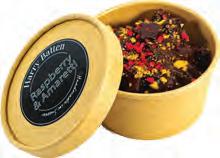
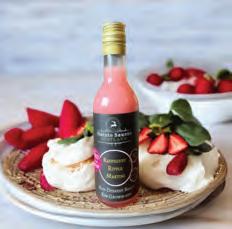
From the inner Hebridean isle of Lismore, Slàinte Sauces is producing boozy sauces for grownups, with Raspberry Ripple Martini its latest creation. This white ruminfused dessert sauce, made with raspberries, vanilla and 12% white rum, is designed to enhance ice cream, meringues and sponge cakes. Trade price £4.30; RRP £6.95-7.50. slaintesauces.com

Having established a following for its macarons via markets and fairs, Portsmouth startup Pauline Macaron has launched its first retail product. With an RRP of £10 (wholesale price £7), the box contains each of the producer’s signature flavours: Pistachio, Chocolate, Lemon, Vanilla, Strawberry, and Caramel. paulinemacarons.co.uk

Expedition food brand Firepot has made its foray into desserts, launching Hot Chocolate Pudding in its signature pouch format.
The Dorset producer’s mission is to create ‘food for the wilderness with the spirit of homecooking’ from fresh, natural, local ingredients - its meals are dehydrated and packed in lightweight pouches, so that adventurers can rehydrate them by adding water. Inspired by the classic chocolate fondant, this pudding combines home-baked cookie dough with chocolate sauce. RRP £7.45; wholesale price £4.49 per 110g pouch. firepotfood.com

Hazelnut Praline is the latest flavour to join Epic Brownies’ line-up, alongside Maple Bacon & Pecan and Cherry Amaretto. The Berkshire producer’s batter is swirled with hazelnut praline paste and the brownies are topped with hazelnut caramel and caramelised hazelnut pieces. RRP £3.50 per brownie. eatepicbrownies.com


info@burtreepuddings.co.uk














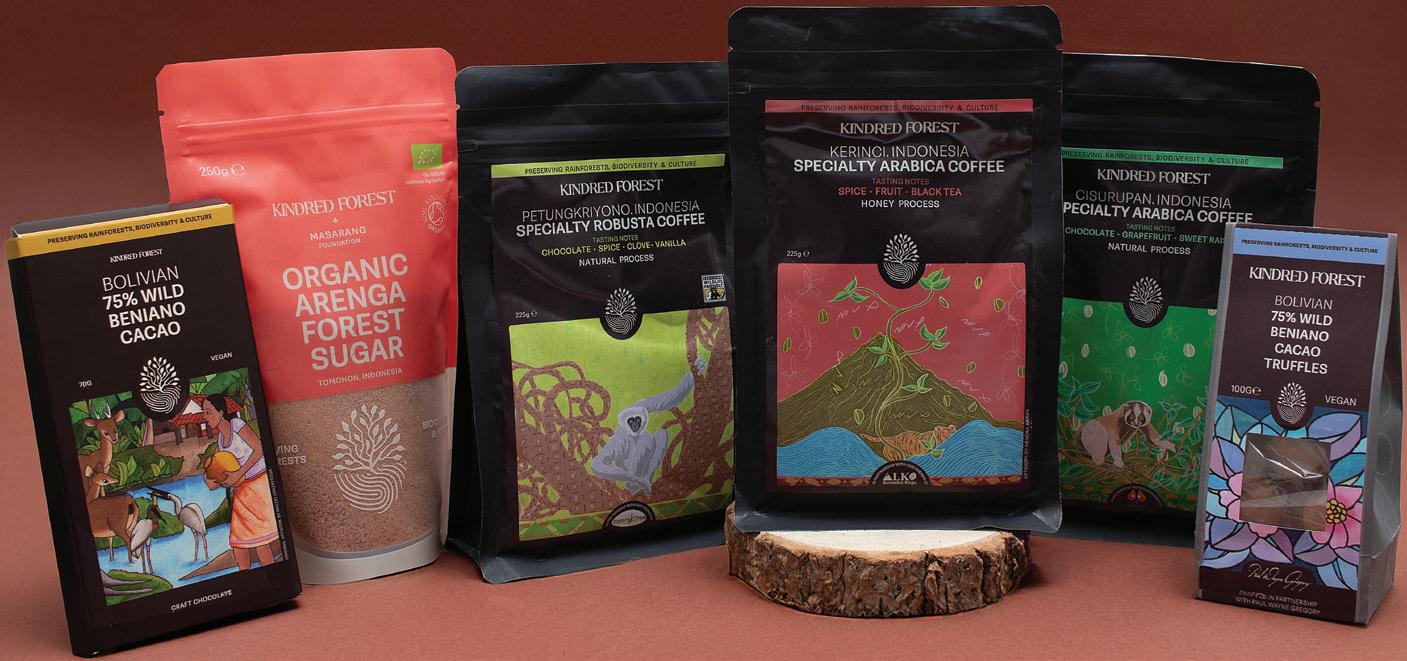
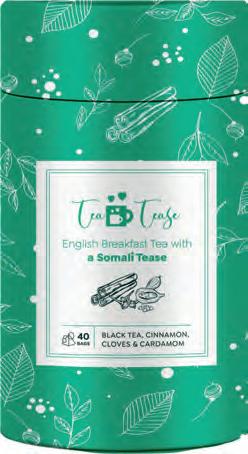


Enjoy your tea the way you LOVE IT!
We are excited to introduce our new flavour: SOMALI TEASE. This blend combines premium black tea leaves with cinnamon, clove, and cardamom for a rich, spiced experience inspired by Somali culture. Each sip evokes the warmth and vibrant spirit of East Africa, inviting you to indulge in a comforting, aromatic journey.

Tea Tease offers an extraordinary collection of teas sourced from diverse regions, each infused with the essence of their unique terroirs. Join us as we continue to bring the world to your teacup, one exciting flavour at a time. Discover the rich, harmonious blend of culture and tea, crafted with care by Tea Tease Ltd.
Come and chat with us on stand D265 at Farm Shop & Deli Show
For Wholesale orders please email or call us for further information teateaseltd@gmail.com | 07956317027 teateaseltd www.teateaseltd.com

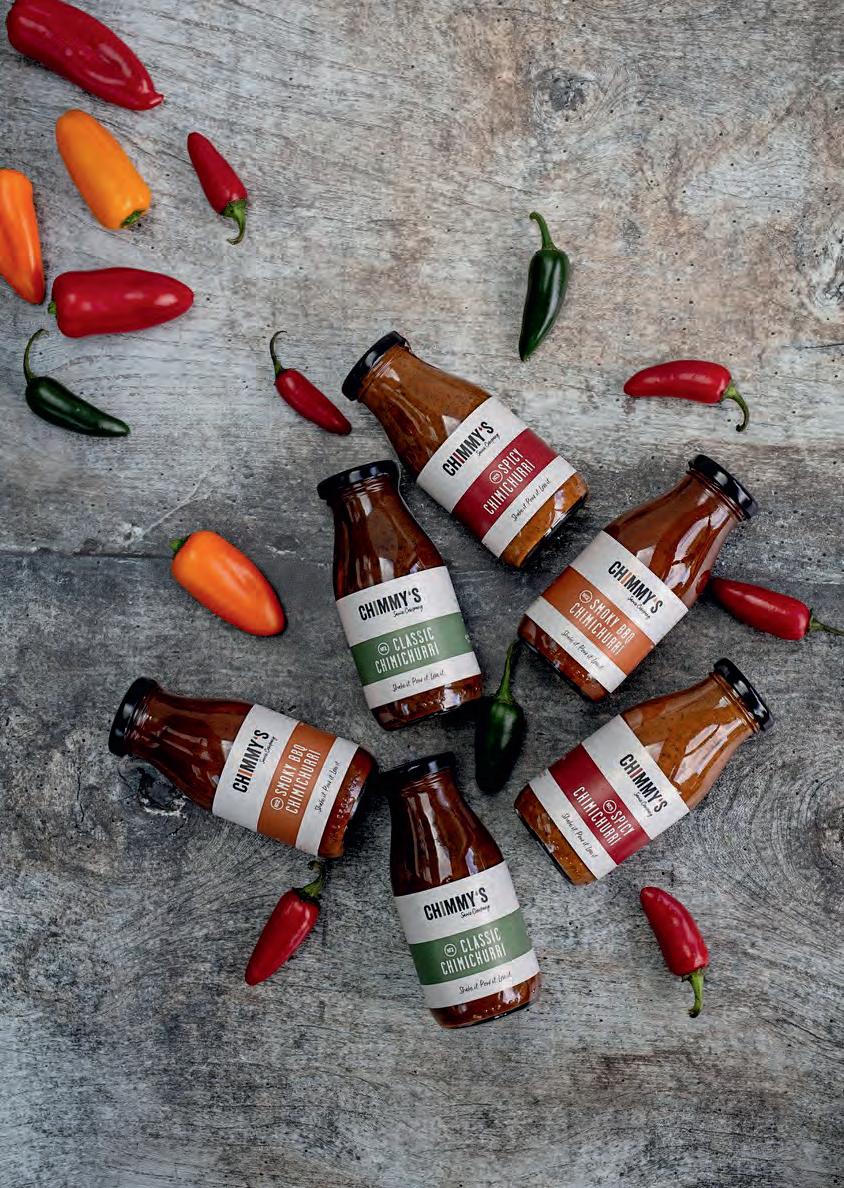



Perfect accompaniment to meat, chicken, fish and veggies Chimichurri sauce for marinating, dipping, or elevating your favourite recipes www.chimmys.com








Ash Mikucki-Ringhus likes to pickle things, but wasn’t impressed by the malt vinegar-based solutions available. He co-founded Sylt (‘you must pickle’ in Norwegian) with Temi Olugbenga to offer something more exciting.
Interview by Tanwen Dawn-Hiscox
How did the idea for Sylt come about? I used to dislike pickles, but my now-wife, who’s got Polish heritage, told me I had to get over myself and start eating them. I did, then got seriously into them and started experimenting. Pickling became a fun way to work with new flavours in my cooking, but I couldn’t keep up with my own demand.
One day, I ran out and thought, ‘why isn’t this just a liquid you can pour over?’
Pickling is simple – just liquid over fruit or veg – but boiling vinegar is a hassle (and it smells). I wanted something easier but found nothing beyond quick pickling made with basic malt vinegar. I like having different flavour variety, so that’s where the idea [to develop pickling liquids] came from.
How did you meet your business partner? We met in our first job in London – we worked in recruitment. We bonded over the fact that we both strongly disliked recruitment and kept in touch. When I had the idea, I knew he was the man for the job.
We launched in 2021 with our first batch on our website. The first couple of years were about testing if the idea had legs. So far, it does, but it’s a big job.
Our biggest early validation was winning some Great Taste awards in 2022. We were still making it in Temi’s kitchen then, so getting a 2-star was huge – not just for us, but for buyers too.
Temi went full-time in summer 2023. Since our 2024 rebrand, we’ve really grown, especially in retail, and we’re now in around 50 shops.
We want to make it a habit – if you have excess veg, your first thought should be, ‘I’ll pickle it.’

Are you working directly with retailers or via a wholesaler?
We have a wholesaler, Mahalo. And in terms of our setup – we moved into Mission Kitchen in New Covent Garden Market last year but we’ve outgrown the space. So, at the moment we’re looking for someone to make it for us.
Where do you source your ingredients?
We’re all natural, no ultra-processed anything. Our vinegar comes from Leicestershire, and
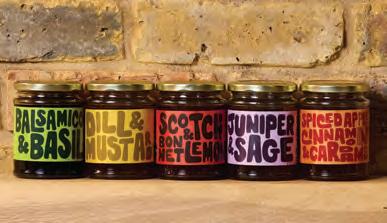
we use sugar, salt, and whole ingredients – for flavour, like the Scotch Bonnet – from our local greengrocer.
Can you talk us through your range?
We launched with four flavours of pickling liquid that won Great Taste awards: Dill & Mustard, Juniper & Sage, Scotch Bonnet & Lemon, and Spiced Apple with Cinnamon & Cardamom. Later, we added Balsamic & Basil.
We firmly believe there should be a pickle on any plate regardless of what you’re having. You just need to find the right one.
Is reducing food waste part of the reason for Sylt?
Definitely. Pickling was originally about preserving seasonal produce, and it lets you extend the shelf life of food by months. Whether it’s seasonal or just fridge leftovers, you can chop up a cucumber and extend its shelf life by months.
Do certain liquids pair better with specific ingredients?
Absolutely – there are pairings we recommend
for each one – not exhaustive, but a starting point. Our first big discovery was pineapple and Scotch Bonnet, which is still our favourite. We’re shifting towards seasonal pickling guides, moving from just saying ‘this flavour is good with that’ to ‘this is in season, pickle it with that’.
What’s the biggest challenge in your business at the moment?
Messaging. Our branding is great, the team have done a fabulous job, but many people still don’t immediately understand what the product is.
How did you first get the concept across?
Markets played a big role. Since the beginning, we’ve also run pickling classes. They’re absolutely brilliant for getting the message out there. Beyond that, social media, especially Instagram, is key too.
How much of your business is direct-toconsumer?
About 30%, though it varies a bit month to month. It’s higher at Christmas.
What’s your main focus this year?
Getting into bigger retail chains. We started by making the product, but now we realise we need to define the whole category for it. It’s an exciting position to be in.
Are you planning to expand the product range?
We’re looking at offering a complete pickling kit so people have everything they need to get started. We’ve talked about selling pickles, but we don’t want to dilute our message too soon. Our mission is to get people pickling, not just eating pickles. We want to make it a habit – if you have excess veg, your first thought should be, ‘I’ll pickle it.’ And it’s more than just a pickling liquid. It works well as an ingredient in marinades, sauces, and anywhere you’d use vinegar – just with added flavour. syltpickling.co.uk




By Lynda Searby
Dark Woods Coffee has repackaged its seasonal, single origin coffees to make them more accessible, shelf-friendly and appealing for gifting.
“Our core range bags still exist and have always stood us in good stead, but some people see coffee as a more luxurious purchase,” Damian Blackburn, director of the Huddersfield-based roastery, told FFD.
“That is where this range comes in – to showcase the very best of what our farm and producer partners are doing. With this new packaging presentation we are looking to convey the value, product quality and hard work that has gone into making these coffees,”
Blackburn. “They are roasted on the lighter end of the spectrum, but their easy-going character makes them generally suitable for espresso and for pairing with milk. Often - though not exclusively - washed processed, they display little or no fermentation or ripe fruit character.”
City reflects recent speciality coffee trends toward more exotic, fruit-driven or floral styles, he added. “Many of these are natural or honey processed but occasionally washed coffees may appear if the varietal or growing conditions nudge them toward higher levels of acidity or fruit complexity.”

All of the coffees in the series are single origin coffees with a seasonal focus and are primarily sourced from producers and coffee communities that Dark Woods has worked closely with over several years.
To make the range more accessible, the producer has split it into three consumer-focused categories: Field, City and Cloud.
“Field is a curation of single estate coffees that lean toward more traditional coffee flavours –think nuts, caramel, chocolate, and citrus,” said

Maya Mexican Food is bringing one of Mexico’s most prized condiments to UK consumers by launching a Salsa Macha range. Founder Ana Maria Guzman says she prepares the smoky condiment “while singing and dancing in the kitchen”. The recipe combines olive oil, smoked chillies, garlic, black pepper, thyme, oregano and salt, as the base for four variants: Peanuts, Cranberry, Nutty and Nuts Free. RRP £9 for 160g; £11 for 230g. mayamexicanfood.com
Cloud coffees, meanwhile, are “complex, challenging and pioneering coffees from globally renowned producers working at the very top of their game”.
Each category is denoted by a different coloured FSC certified board box with a home compostable bag inside.
As the collection is seasonally driven, it is constantly changing, and one of the latest introductions is Colombia La Dinastia Maragesha - a rare arabica that sits in the Cloud category.
RRPs range from £11.95 to £23.95 for 200/250g, wholesale prices £8.70 to £16.05. darkwoodscoffee.co.uk

East meets west in Chimac’s newest condiment, which fuses the sweetness of ketchup with the spicy and slightly fermented flavours of kimchi. Developed by chef Garret FitzGerald, Kimchi Ketchup is also served in Chimac’s Korean fried chicken restaurant in Dublin. RRP of £8 for 350ml. chimac.ie

Meeting consumer demand for premium snacks with provenance is Burts Chips, with a new Herb Roasted Chicken flavour that launches this month in 40g (RRP £1.25) and 150g (RRP £2-2.50) bags. The handcooked chips are seasoned with a combination of herbs and real chicken sourced from Creedy Carver, Burts’ Devonbased provenance partner. burtschips.com
Biona has introduced Ginger & Turmeric Paste as a short-cut for prepping South East Asian and Indian dishes such as curries. The ready-to-use blend, which eliminates the need to peel or chop, is made from organic ginger and turmeric - two ingredients that are in high demand for their reputed health-giving properties. RRP £3.19. biona.co.uk

Louisiana Creole is a style of cuisine that is barely represented on UK retailers’ shelves, but Emilee Fallo, founder of Angelina’s New Orleans Cuisine, is on a mission to change that.
According to fashion stylist Fallo, most people don’t know the difference between Cajun and Creole.
The company is named after her grandma, Angelina, a second-generation New Orleanian who grew up during the birth of jazz. Fallo, who splits her time between Newcastle Upon Tyne and London, approached Cotswold Gold with two of Angelina’s Creole sauce recipes initially.

The end of 2024 saw the launch of two further recipes: New Orleans Jambalaya Rice One-Pot Mix (RRP £7.50 for 250g) and New Orleans Gumbo Mix (RRP £4.50 for 200g). Both are dried mixes made for the brand by Richard Whittaker.
The Jambalaya brings together a vegan Creole sauce and seasoned rice, ready to pair with chicken,
sausage, seafood or plantbased protein. The Gumbo kit contains all the dry ingredients that are needed to create a one-pot stew that blends African okra, French roux and Native American filé powder.
The packaging is reminiscent of the jazz era. “We wanted to keep it art deco - simple, stylish and very New Orleans,” said Fallo.
The brand is currently gearing up for its second production run and, having secured some listings with smaller independents in the North East, is in discussions with Fenwick and Waitrose. angelinasneworleans.com

Dutch challenger brand Holie’s has arrived on the UK breakfast scene with a sixstrong range. It claims to have created “the world’s healthiest cereal range”, and evidences this with data that shows its granolas and mueslis contain more protein and fibre and less sugar than leading brands. RRP £3.50 for 350g granola; £3,70 for 400g muesli. holiefoods.com
Having sold more than 1 million cans in the Czech Republic in 15 months, CANS has come to the UK. A blend of Alpine water and real fruit with no added sugar, these sparklers are marketed under the slogan ‘I am not sweet’ in Apple, Cherry and Lemon flavours. RRP £1.39/330ml can. cans.com

Thursday Cottage has put a tropical twist on its classic Lime Curd with the addition of desiccated coconut. The Essex preservemaker says that the flavour combination makes Lime & Coconut Curd great for swirling into buttercream for a sponge cake filling or adding a burst of flavour to muffins. Wholesale price £9 for 6 x 110g jars. thursday-cottage.com


DAVID HOBSON-CLEVERLEY, owner, David’s Deli, Streatham
Baron Bigod is one of our most popular cheeses and always flies out of the door as soon as we get it in.
Fen Farm Dairy has created the perfect brie in my opinion and it’s so diverse as an ingredient.
Obviously, it’s amazing on a cheeseboard, but my favourite thing to do on a cold evening if I’m working late is bring a Baron home and stick it in the oven for 20 minutes stuffed with some smoked garlic from the Isle of Wight Garlic Farm, a bit of rosemary, and a splash of white wine. With some fresh bread and sausages, it’s a quick, easy meal and beats any baked Camembert hands down.
We run quite a few wine tasting events at the deli and love to create canapés with the Baron too. Last week we paired it with smoked salmon from Smoke and Cure, another gem. We also love to put it in our sandwiches, with cured meat or smoked chicken.
It’s such a great flavour it can stand up to anything and complements lots of different flavours. Long may the Baron reign!
By Lynda Searby
KAYTEA, known for its RTD ice teas, says it is the first to market anywhere on the globe with the launch of electrolyte-infused teabags that tap into the hydration trend.
The company’s founder, Kevin Tang, told FFD: “While electrolyte-infused drinks exist, the combination of whole-leaf tea bags with electrolytes appears to be a novel concept in the UK and globally, making KAYTEA the first to introduce this innovation.”
Hydro Infusions blend botanicals and natural fruit flavours with electrolytes, including magnesium, potassium, sodium, calcium and chloride.
gradients across cells, facilitating osmosis and aiding the body in absorbing and retaining water.”
While exact electrolyte quantities per serving are not stated on pack, he said the average blend contains around 150mg of electrolytes.
Used by athletes as a performance and hydration aid, electrolytes are now mainstreaming as part of a broader hydration trend.
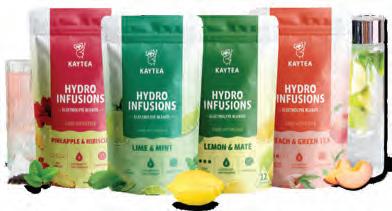
“These electrolytes are derived from minerals and salts and an ion exchange process,” said Tang, explaining the mechanism by which the teas hydrate.
“When dissolved in water, they naturally dissociate into positively and negatively charged ions, which helps maintain the electrochemical
Tang cited three drivers behind this shift: increased consumer awareness of hydration’s role in health and wellness, rising demand for functional beverages that offer more than refreshment and the growth of active lifestyles and fitness-conscious consumers who are aware that dehydration can cause fatigue, headaches, dizziness and muscle cramps.
The teabags are available directly in four flavours: Pineapple & Hibiscus, Peach & Green Tea, Lime & Mint and Lemon & Mate. RRP £7.99 for 12 bags. kaytea.co.uk

We love to put it in our sandwiches, with cured meat or smoked chicken.
“There were lots of reasons behind the launch of Honeyade,” Matt Newell, one half of beekeeping brother duo Hive Mind, told FFD. “Our customers are showing more interest in non-alcoholic options, creating an opportunity to broaden our portfolio. Instead of being known for just mead, we want to be known for honey drinks.”
He said push back against ultra-processed foods and artificial sweeteners was also a factor. “Lots of soft drink companies are adding 4% sugar and then topping up with artificial sweeteners to get in just under the tax threshold. We wanted to create something that was the antidote to that.” Hive Mind Honeyade blends British honey, sparkling water and natural flavours. RRP £1.95/330ml can.
hivemindmead.com


























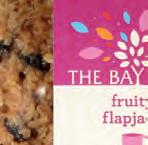





































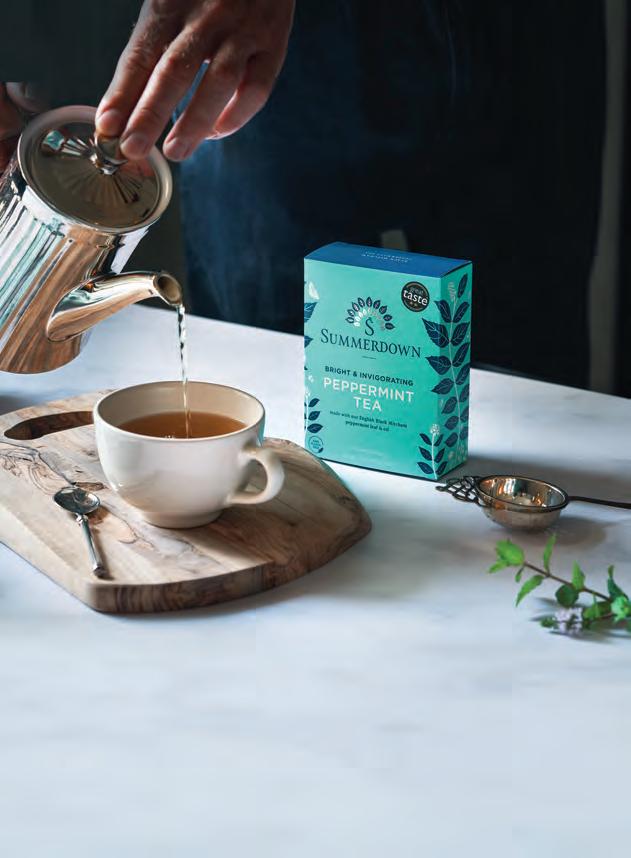



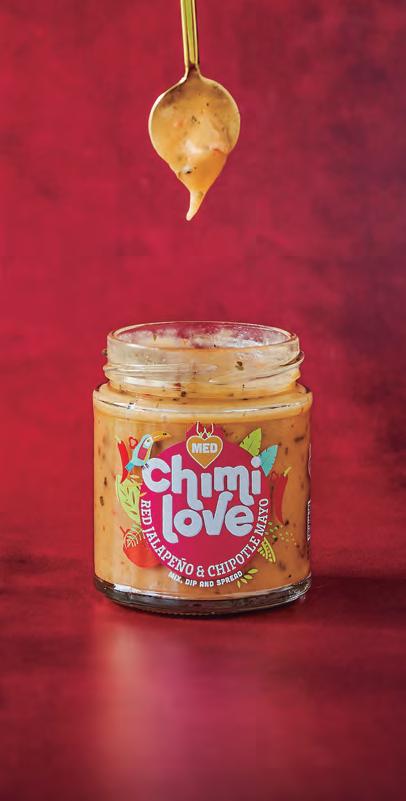

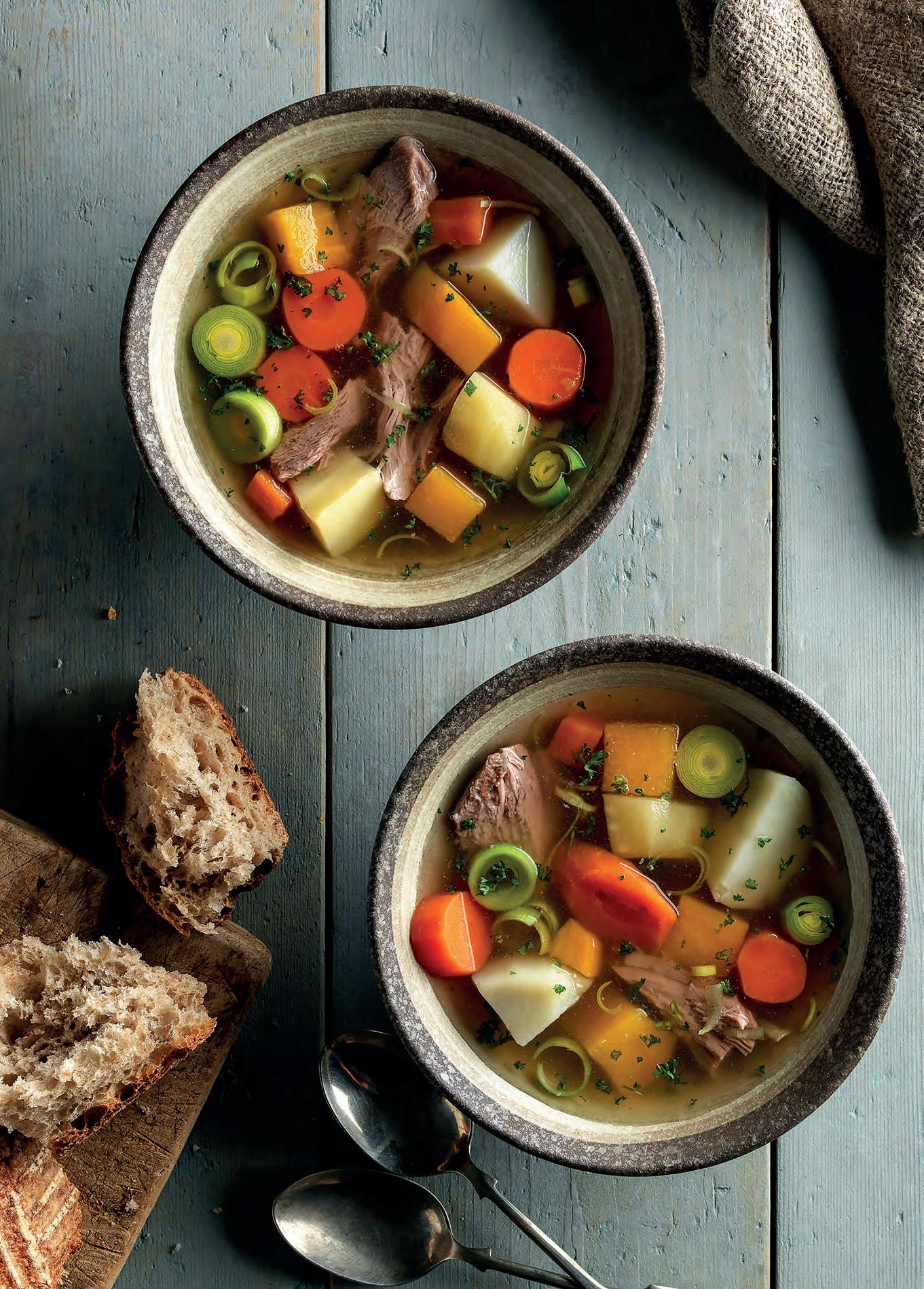


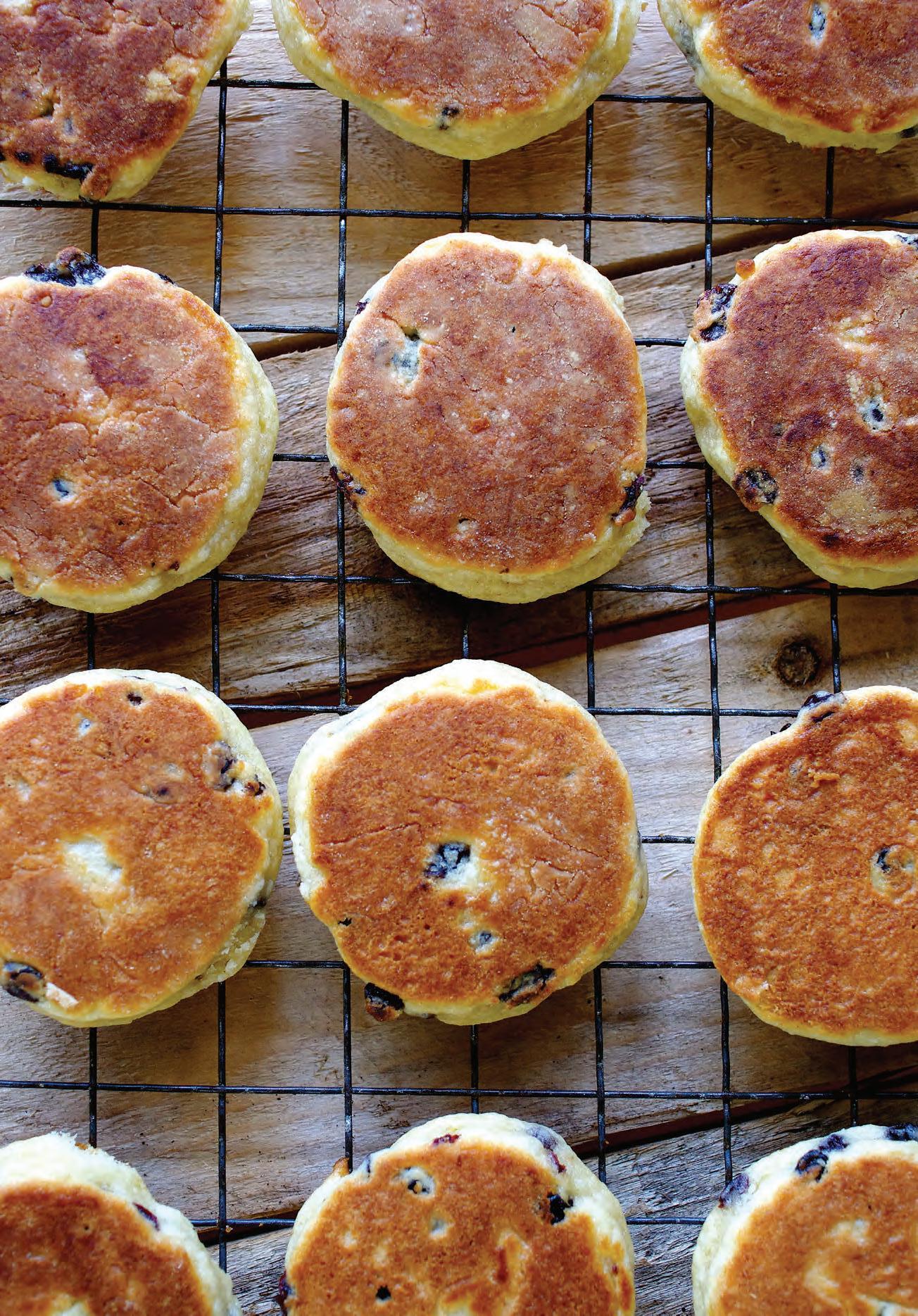
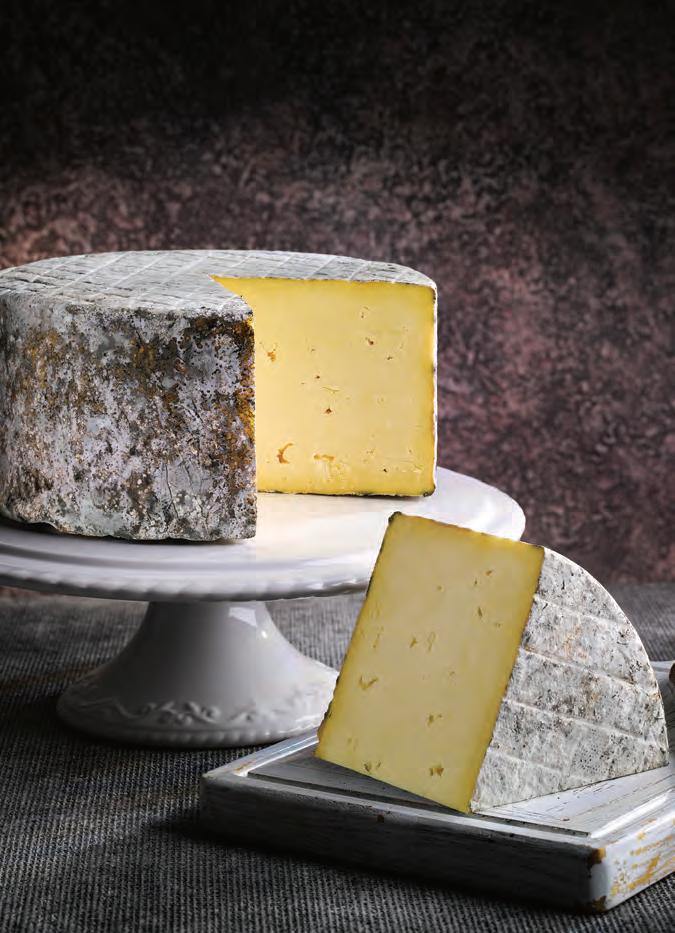

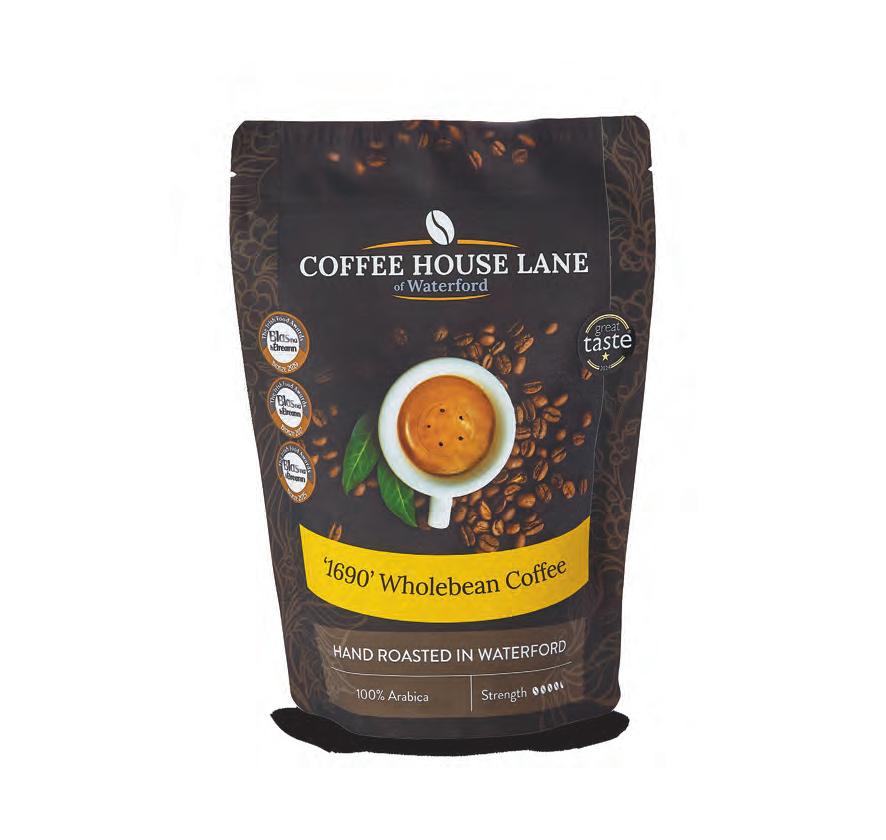


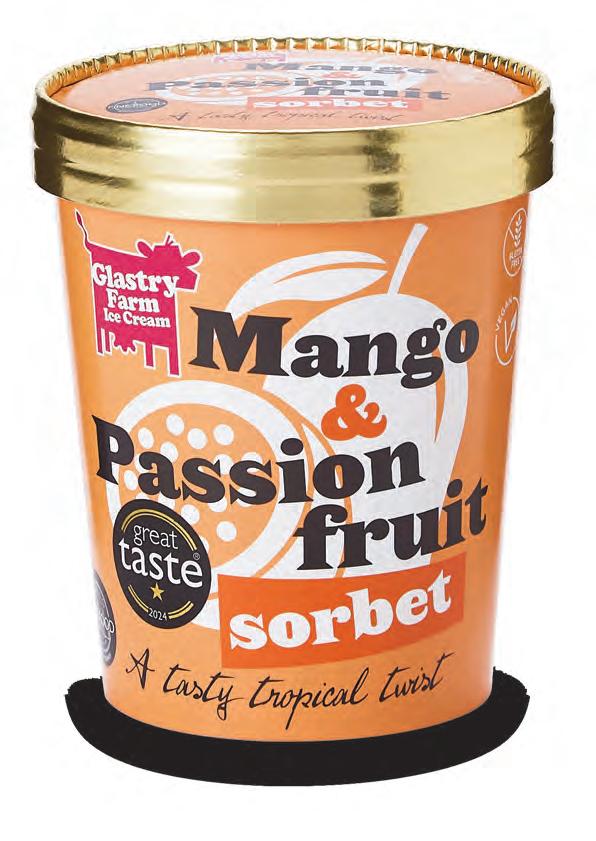



IFE takes place at Excel London, as part of Food, Drink & Hospitality Week on 17th-19th March, bringing together suppliers and buyers from across the globe.

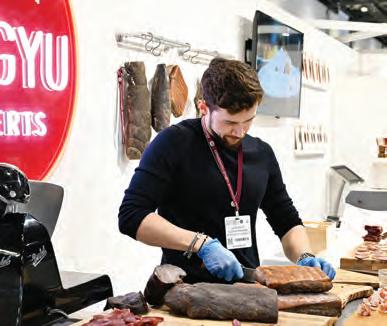

IFE has long been the launchpad for emerging brands, and 2025 will be no exception. The Startup Market and New Products Tasting Theatre will put the spotlight on cutting-edge innovation. This is where buyers can discover the next big thing, from unique flavours to sustainable packaging solutions.

The Future Food Stage at IFE will host thought-provoking discussions on sustainability, the latest consumer trends, and the evolving retail landscape, providing key takeaways to shape their business strategies. With a programme designed to tackle the most pressing challenges and opportunities in the sector, IFE offers invaluable industry knowledge.
IFE takes place alongside IFE Manufacturing, The Pub Show, HRC, and chef competition International Salon Culinaire as part of Food, Drink & Hospitality Week. Together, these shows will feature more than 1,500 suppliers and attract 30,000-plus industry professionals. ife.co.uk 1 4 2 5 3 6
As a trusted platform for retailers, wholesalers, and hospitality buyers, IFE has consistently showcased the most exciting products and emerging trends that shape the future of food & drink. Attendees can gain valuable insights into consumer behaviour, industry shifts, and market innovations.
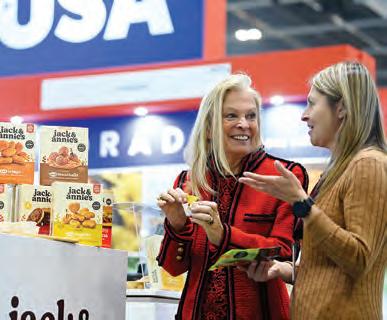
IFE 2025 will bring together exhibitors from over 60 countries, making it a truly international showcase of food & drink. Buyers can explore authentic flavours, connect with international suppliers, and discover opportunities for expanding their product ranges. As international markets continue to influence UK trends, this global perspective is vital.
IFE 2025 will feature over 15 dedicated sections, bringing back favourites such as the Bakery, Snacks & Confectionery, the Speciality Food and Grocery & Wholesale areas, while also expanding its Fresh Produce Section. Attendees can explore everything from artisan ingredients to the latest plant-based innovations.
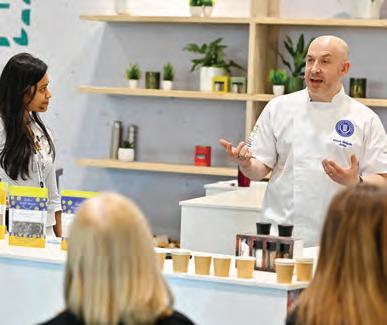
Our one-day course for anyone sourcing or selling cheese, delivered by industry and retail experts. Understand how cheese is made, how it should be stored and sold, gain skills to help communicate with customers and sell more cheese from a position of knowledge.













Kelly and Andrew Shearer met while working for Whole Foods Market in their home city of Austin. After getting married, they moved to the UK and set up their own shop in Hornsey in the north of the Capital. Now they are celebrating the fifth birthday of Middle Lane Market.
By Claire Bullen
YEARS BEFORE THEY married, relocated to London, or ever dreamed of opening their own deli, Kelly and Andrew Shearer first bonded over produce.
At the time, Kelly, now 38, and Andrew, 41, lived in Austin, Texas, where they both worked at mini-restaurants within Whole Foods Market’s flagship location. “I remember one of the first things Andrew said to me is that he was making fun of how I was dicing vegetables,” says Kelly.
The critique was ironic. Kelly had come
VITAL STATISTICS
Location: 226 Middle Lane, London N8 7LA
Average basket spend: £11.82
Average margin: 40%
Floor space: 32 sq m
Products: 800
from a restaurant background, and also volunteered at an organic farm – work which was rewarded with crates of free fruit and vegetables. Soon, Andrew began to accompany her to the farm, and later invited her over to help him chop, brine, and cook his way through the glut.
“When I went over, the one thing that we made was pickled watermelon rind, which I just thought was ridiculous because it was taking the one thing that doesn’t have to be refrigerated, using the peel, and then you
have to refrigerate all the fruit,” she says. “So, it actually made it worse for his fridge.”
Ridiculous it might have been, but it was still the beginning of everything. Three years later, in 2014, they were married. Less than a year after that, the two were on a one-way flight to London.
“I always wanted to move somewhere else,” says Andrew. Kelly had studied abroad in London, while Andrew had the benefit of a British passport thanks to his Glasgowborn parents. “After taking trips here, and


realising how close it was to the rest of Europe, it opened up so much for you if you moved here.”
Upon arriving in London, the couple quickly found jobs at Whole Foods Market’s Piccadilly location. But they knew they eventually wanted to build something of their own.
“I always have wanted to have my own business,” says Kelly. “My dad has worked for himself for most of my life, and to me it just seemed obvious that I would at some point, but I never knew how we could do it financially.”
Later, Andrew took a job at La Fromagerie, and the couple kept their ears to the ground. “Someone who we used to work with had sent me a link to another deli that was looking to sell,” Kelly says. “We couldn’t have afforded to buy a shop, but when I looked at their plan and saw what the rent was, I was like, ‘Oh, that’s not as bad as I thought’.”
From there, the journey to Middle Lane Market unfolded, if not easily, then with a certain sense of inevitability.
Shortly after the couple moved to the North London neighbourhood of Crouch End in 2019, they noticed a storefront on Middle Lane in nearby Hornsey that was available. While the landlord ultimately turned down their application, they received a tip-off about another space coming up for rent just a few doors down – a larger, airier site at the intersection with Priory Road.
There, the landlord was more supportive of the first-time business owners. The shop was also in good shape, needing only some minor plumbing and flooring work before they could move in. The couple set about decorating the space with a blue-and-white colour scheme that evokes Yves Klein and Greek islands, while an illustrator friend designed their hand-scrawled logo.
“They were happy to have someone who was going to come in and take care of it,” Kelly says of their landlord. “They took a chance on us.”
In October 2019, Middle Lane Market officially opened its doors.
At the time, the couple didn’t have the funds to fully stock the shop, but they did have enough to offer a healthy selection of cheese and wine. In its early incarnation, Middle Lane Market also had a more explicit focus on bulk goods – in keeping with the founders’ lowwaste ethos – and grocery basics.
“When we first opened, we wanted to do a lot more bulk stuff,” says Kelly. “[But] the whole reusable container thing totally died during Covid.”
The arrival of the pandemic threw the five-month-old business into turmoil. At first, panic-buying customers came seeking eggs, flour, and toilet roll in droves. But before the first lockdown was even announced, the Shearers realised they would

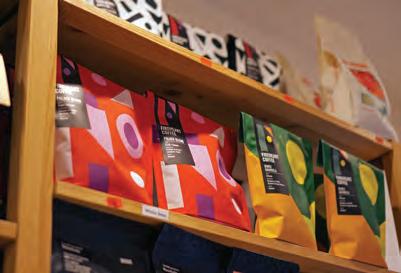
Focaccia sandwiches (in-house)
Holloway Model Bakery - Sourdough
Bouquets
Comté
Frozen slushie cocktails (prepared in-house)
Cacklebean Eggs
Fireheart Coffee - Palace Blend
Patatas Fritas San Pablo - Salted Olive Oil Crisps
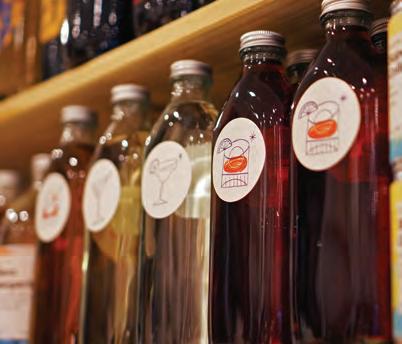
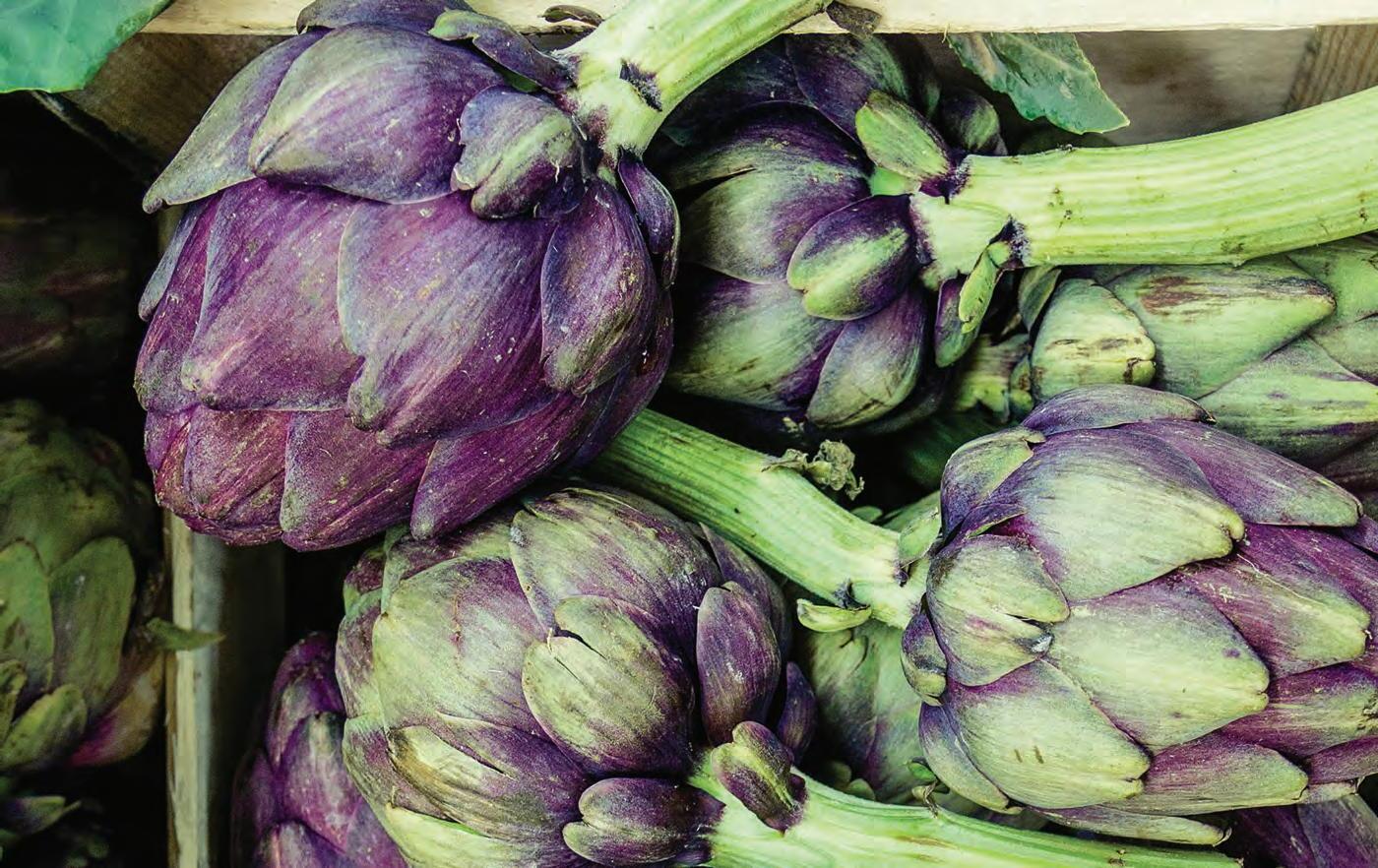
Farm Shop & Deli Show will return to the NEC, Birmingham from the 7 - 9 April 2025, as part of the award-winning UK Food & Drink Shows.
Make sure you come along to the largest gathering of the specialist retail sector where you can:
• Connect with 100s of innovative suppliers, meet with peers and make valuable contacts
• Sample and source the latest innovations under one roof
• Gain valuable market insights from industry experts and have your say on hot-topic debates
need to pivot to an online business model to weather the storm.
“We were like, ‘If we catch Covid, we’ll have to close our shop’,” says Kelly. “And if we had closed our shop for any days that weren’t planned at that point, we would have not had enough money to keep the business afloat.”
The couple made the decision to unplug the coffee machine and close to everyone except customers picking up online orders. Over time, the two noted an evolution in shoppers’ preferences.
“Once lockdown became more of a thing, people started using our shop to get treats,” Kelly says. “That felt really nice, and we shifted more in that direction after Covid.”
Today, “treat purveyor” feels like an apt description of Middle Lane Market. Cheese and wine remain cornerstones of the business, but are now joined by other quotidian luxuries from locally roasted coffee and small-batch vinegars and olive oils to premium charcuterie. There are fine chocolates and scented candles, greeting cards and freshly cut bouquets. Crisps from Spain and France, whimsically flavoured ice creams, and crates of German lagers flank the doorway, offering an unspoken challenge to any customer trying to resist temptation.
Middle Lane Market also stocks its own eclectic range of in-house products, including bottled cocktails, sandwiches, slushies, and vegan banana bread. The coffee machine has long since awoken from its



lockdown slumber; today, flat whites are the deli’s top-selling product.
Though both Kelly and Andrew worry about keeping their product range distinct from what other London specialtiy shops offer, they do have one little-replicated signature: Mexican ingredients. In a nod to the owners’ Texan roots, Middle Lane Market remains one of the only businesses in the area to reliably stock tinned tomatillos, corn tortillas, and El Yucateco hot sauces.
This past autumn, Middle Lane Market welcomed a sibling: Bonne Route, a neighbourhood wine bar that situates the vibe of a Parisian cave à vins within a Crouch End Victorian terrace. The bar’s brick fireplace and wood-panelled walls make it feel like the living room of someone very stylish.
“We’ve gotten a lot more interested in wine in the last five years, a lot more involved in it,” says Andrew. “[Opening Bonne Route] feels like a good excuse for us to buy more wine, too.”
The relationship between the two businesses is a symbiotic one. “We couldn’t do Bonne Route without having Middle Lane Market,” adds Andrew. The latter doesn’t just have the necessary cellar space that the former lacks; it also supplies the wine bar with quantities of bread and cheese that would be too small for most wholesale orders, helping avoid waste in the process.
Today, Andrew and Kelly, as well as their eight employees, work across both sites.
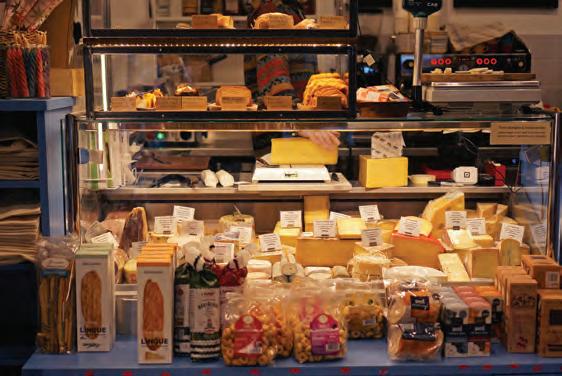
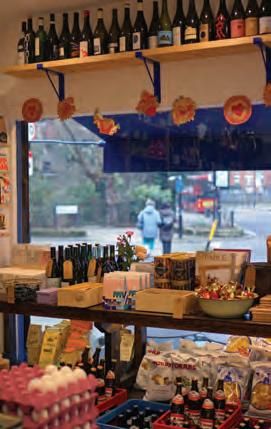
Middle Lane Market’s classes – a staple of the business since its 2019 opening, and which have included everything from wine and cheese tastings to water-kefir-making workshops – have recently relocated to the more spacious Bonne Route, with more team members stepping up to host them.
“We have a really amazing team of people who are really talented,” says Kelly. “So it’s nice to be able to give them things to do that are exciting to them, and they get to use their talents.”
As we chat, the whole team is preparing to travel to France’s Jura region, where they’ll visit local producers and steep themselves in Vin Jaune and Comté. The trip is at once a learning opportunity, a form of team bonding, and a good excuse to get everyone out of town while Middle Lane Market undergoes its first refresh and renovation in five years.
Half a decade is a natural inflection point for any small-business owner. Today, both Kelly and Andrew remain focused on the challenges ahead, including the business rates and National Insurance changes set to come into effect in April. Despite the impending squeeze, they sound more determined than daunted about their future plans.
“I never want to do it in a negative or fearful way. We just need to be realistic, and we need to be creative,” says Kelly. “Hopefully it’s in a fun and exciting way.” middlelanemarket.com
We’ve gotten a lot more interested in w ine in the last five years.

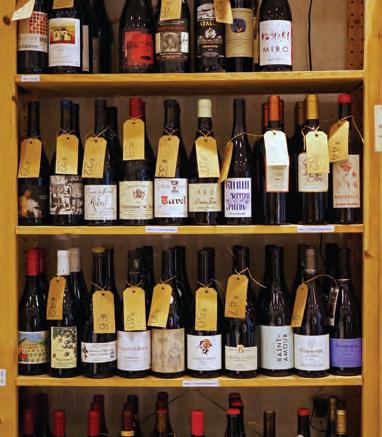

Indulge in the taste of India with Haldiram’s – a legacy crafted with love, savoured by all.
For over eight decades, Haldiram’s has been synonymous with authentic Indian flavours, bringing the richness of traditional sweets and snacks to every corner of the world. Our journey began with a passion for quality and love for India’s timeless recipes, passed down through generations. Our award-winning delights—Habshi Halwa, Kaju Katli, Gulab Jamun, and Kesar Rasmalai—are a testament to our commitment to taste and tradition. Recognised by Great Taste®, each of these sweets captures the essence of India’s culinary heritage, crafted with the finest ingredients and an uncompromising dedication to excellence. www.haldiramuk.com
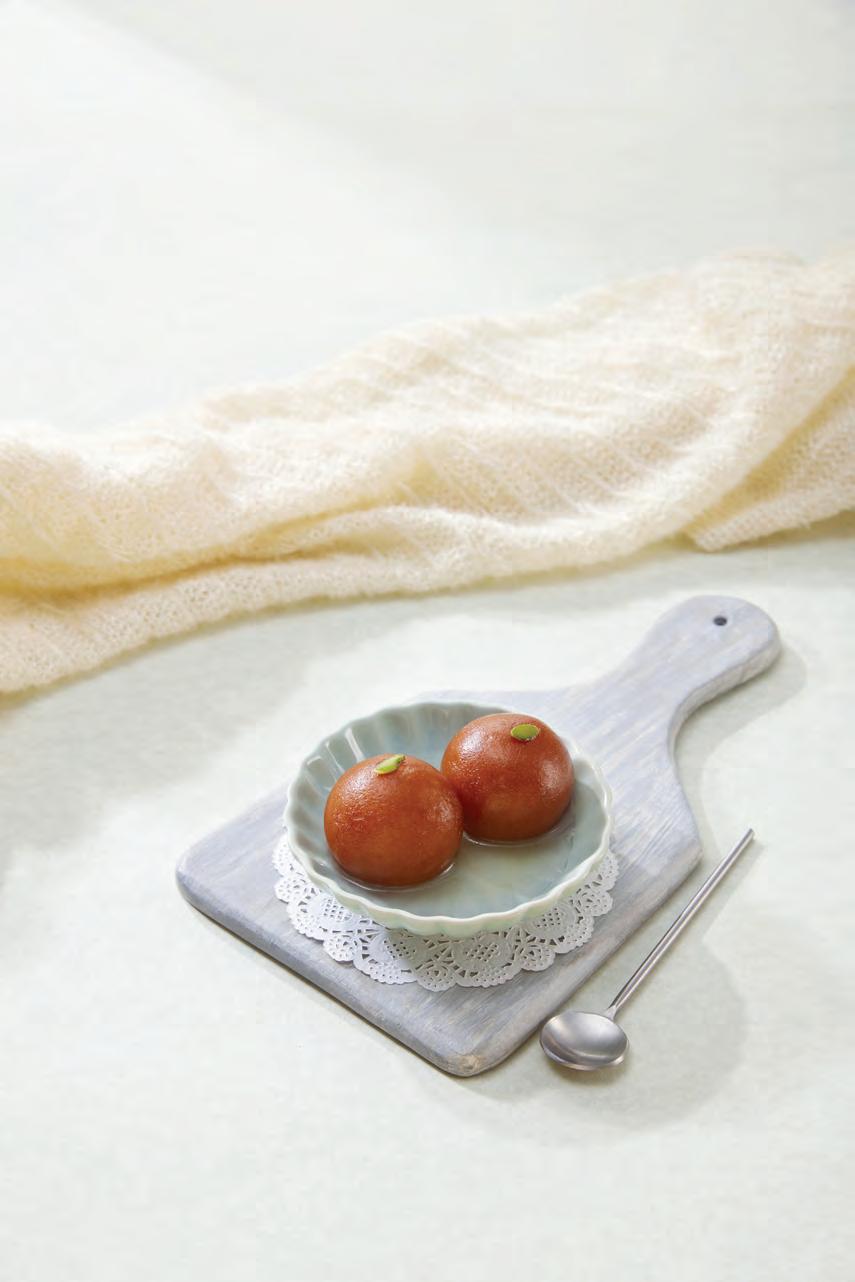
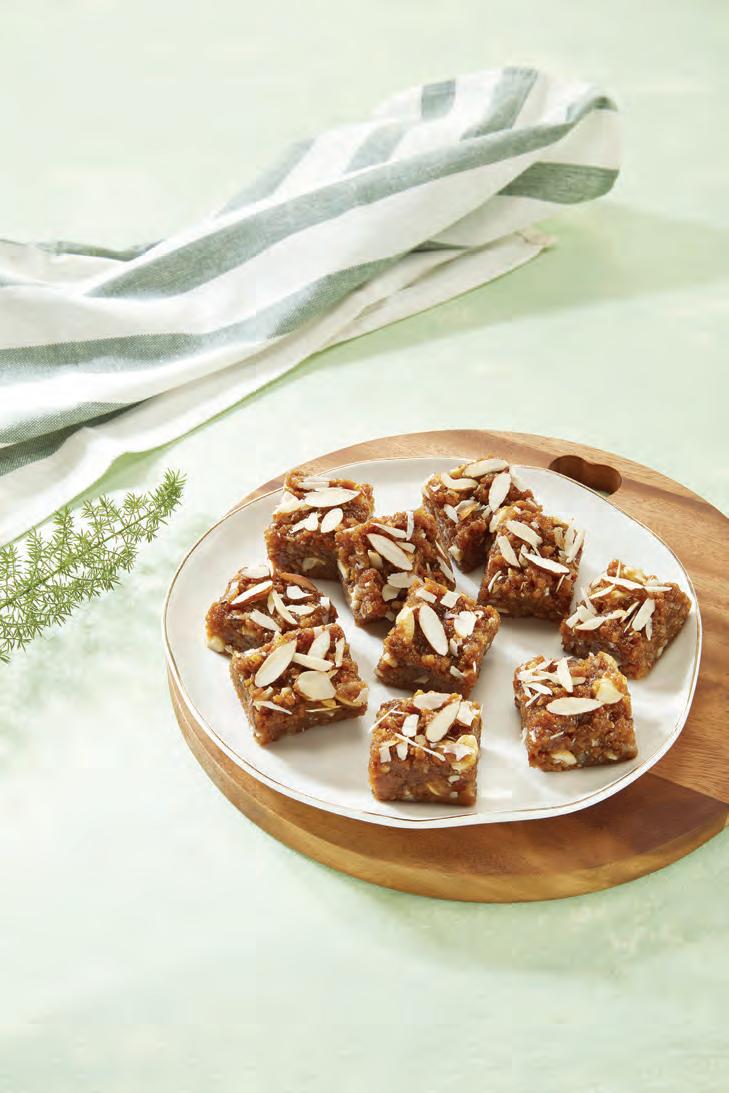


MERCHANDISING
EXPERT JUDY
ROBERTS OF RIGHT PRODUCT
RIGHT PLACE HAS SOME POINTERS ON SIGNAGE

In the realm of food retailing and hospitality, effective signage is a crucial tool that can significantly enhance customer experience and drive sales and profitability. To avoid wasting your time and money, consider the following points:
Clarity and Simplicity
An effective sign is one that communicates its message clearly and concisely. Use simple language and avoid cluttering with too much text or too many images. Bear in mind the time the customer will have to read the sign and make sure it is easily understandable immediately. Use large, readable fonts and high-contrast colours to ensure visibility from a distance.
The location of your signage is just as important as its content. Place signs facing customer flow. Watch how customers use the area to determine the highest traffic areas, such as entrances and till points. Help customers to navigate around your spaces, too, with clear overhead, navigational signage – if we understand how a space works, we’ll be more relaxed as customers, and relaxed customers spend more money.
Maintain a consistent design across all your
signage to build brand recognition. Use the same fonts, colours, and logos in all your signs to create a cohesive look. This not only reinforces your brand identity but also creates a professional and organised appearance. Use a contrasting bright colour (e.g. red) to highlight special offers, making sure you don’t overuse this. Less is more and will stand out far better.
Keep your signage up-to-date to reflect current promotions, events, or seasonal changes. Outdated signs can confuse customers and create a negative impression, whereas fresh, new messaging gives customers a chance of seeing something new and sends a message that you keep things moving …always a reason for return visits.
Outdated signs can confuse customers and create a negative impression
These new waste disposal and recycling rules seem a bit arduous. So many questions.
By applying these principles, you’ll create effective signage that not only communicates your message clearly but also enhances the overall customer experience, highlighting promotions, and contributing to your financial success.
rightproductrightplace.co.uk

How does it all work? Who’s going to collect it? How many bins do I need to have?
Always striving to keep wastage low is vital to independent retail success. So plenty of deli operators will be wondering whether it is safe to cook and freeze a previously frozen raw product.
Sausage rolls are a good example
The use of an efficient oven is essential for reheating purposes.
of this, because they are often supplied frozen.
The short answer is that, yes, cooking and re-freezing in this instance is considered a safe practice.
However, when these products come to be used they should be defrosted under refrigeration and, if being reheated, should achieve a core temperature of 70˚C for 2 minutes or equivalent as quickly as possible.
Consequently, the use of an efficient oven is essential for reheating purposes.
Fine
Food’s Assured Code of Practice for Deli Retailing
The guide is available in PDF format (free for Guild Members, £250+VAT for non-members). To request a copy of the Code,
This advice is an excerpt from the Guild of Fine Food’s Assured Code of Practice for Deli Retailing. The guide is available in PDF format (free for Guild Members, £250+VAT for nonmembers). To request a copy of the Code, email support@gff.co.uk

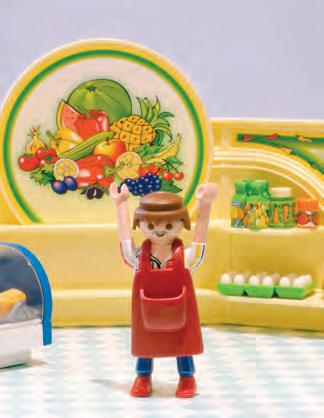
Hold on, am I actually exempt? How can I tell if I’m too big to avoid these rules? What even is a “microbusiness”?
FFD says: It’s probably the last thing that indie retailers need right now but the new Simpler Recycling rules and regs on waste management and recycling come into force this month. If you need help understanding them and whether they apply to your business, the Guild of Fine Food’s retail Code of Practice has been updated. Email support@gff.co.uk.
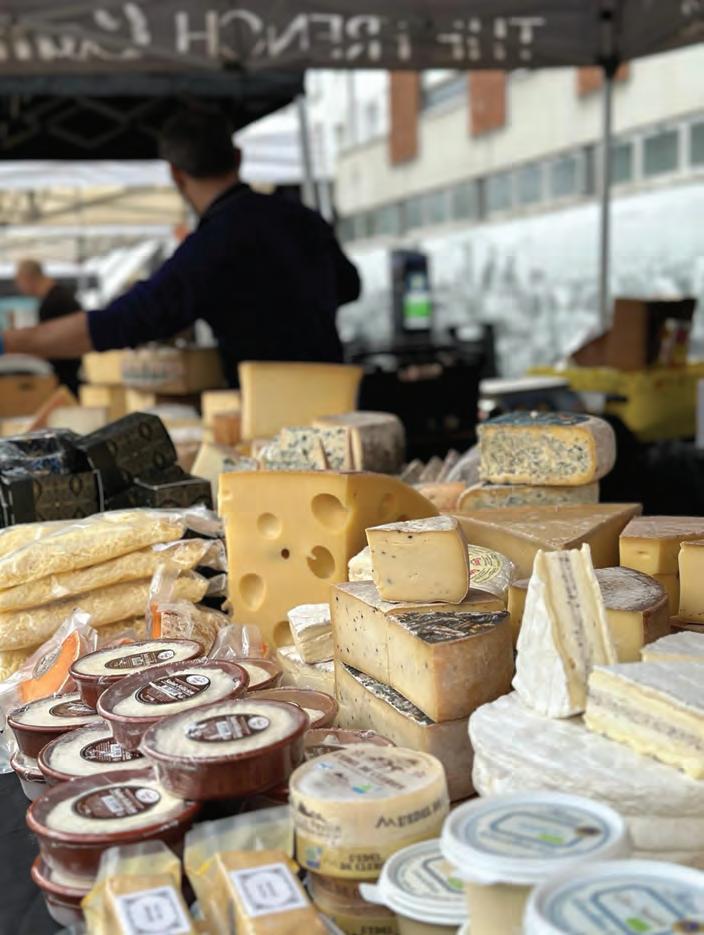


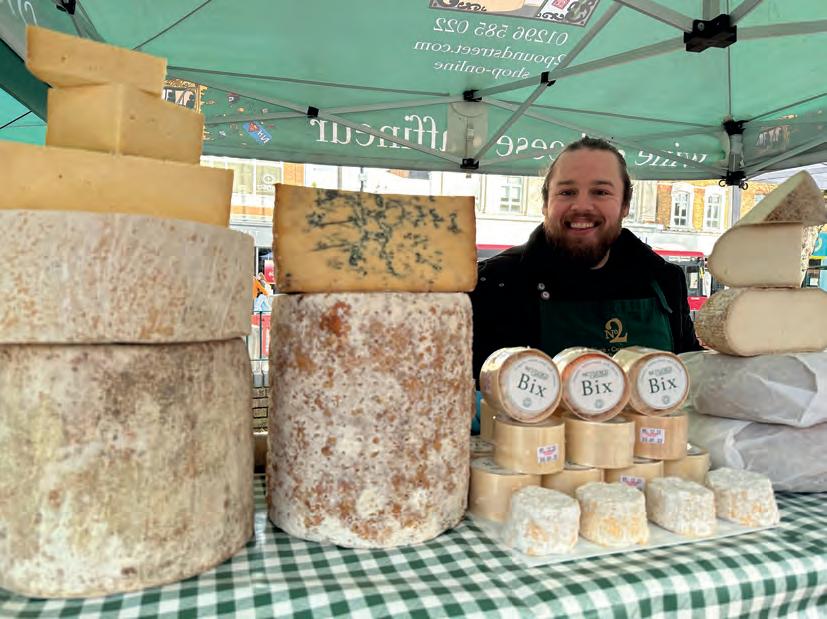

From the most exotic foods across the world to probably the best biscuits and cakes in the country, Shire Foods continues to supply an extraordinary range of local, national and international products to every corner of the UK.

Our newly packaged premium range of products are available to order now!
We also offer an exclusive own-label service!
Add your shop’s logo to our premium products for Shire Fine Foods’ quality but with a personal touch. Contact us today for more information!


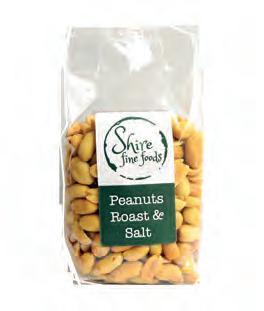

Nationwide delivery, right to your doorstep! View our full range of products online



